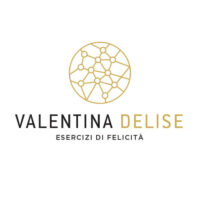Home.
Home is where you feel good, where time and space become yours, adapt to you, and make you feel safe.
Home can be a blank page to fill with words, a hut in the middle of nowhere, o a place to take shelter in, that is even a hug.
To me, home is the people, they’ve always been, anywhere I go. And, thanks to my job, I find unexpected homes around me, which make me realize how lucky I am.
Every time I meet Carlotta, I feel good, I’m relaxed, and our whole team is. She becomes home right away. Her discretion turns into warmth, and there’s no need for too many words because we like to let images, expressions, and faces talk.
Speaking of which, Carlotta has opened to us the doors of her new house, to talk about her latest book, “Memoria delle mie puttane allegre,“ published by Marsilio for the Passaparola collection. It’s a Narrative book telling about another place, Marina di Castagneto Carducci, where Carlotta grew up, which she compares to Garcia Marquez‘s town of Macondo, also comparing the women who are part of these two worlds.
A book to devour in one-afternoon time and which, once again, speaks of a home.
Because, after all, what are books if not bubbles dispersed in time, where to stay for hours or entire days? And so, why can’t these, too, be called homes?
We like to get lost in this very way: between books, hugs, smiles, and pictures.
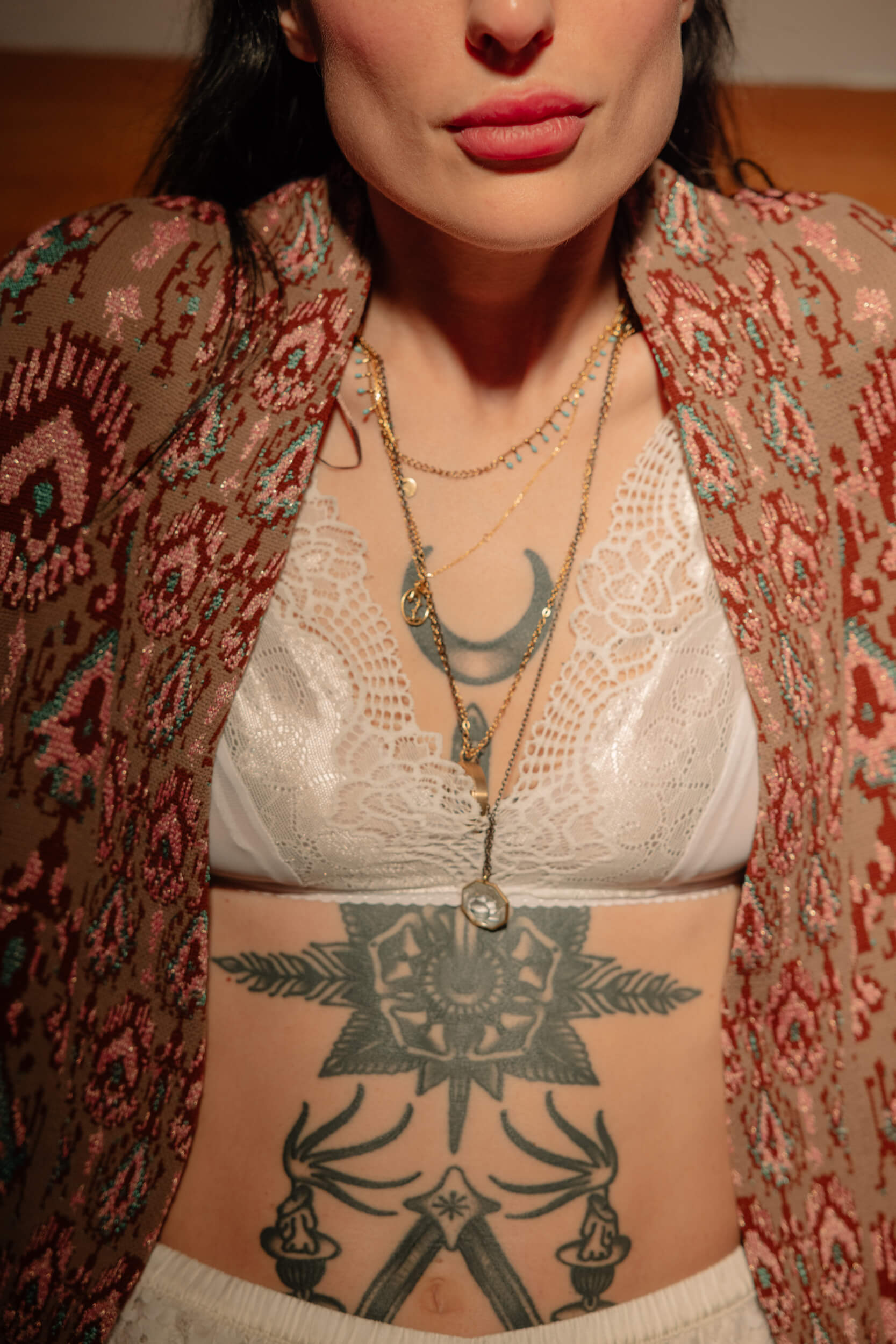
I loved your book, I read it in one-afternoon time.
Thanks, I’ve loved writing it, it’s been fun. It’s different from the same old essays, in fact, they put me in the Narrative section, when we actually didn’t think of the book as a Narrative work.
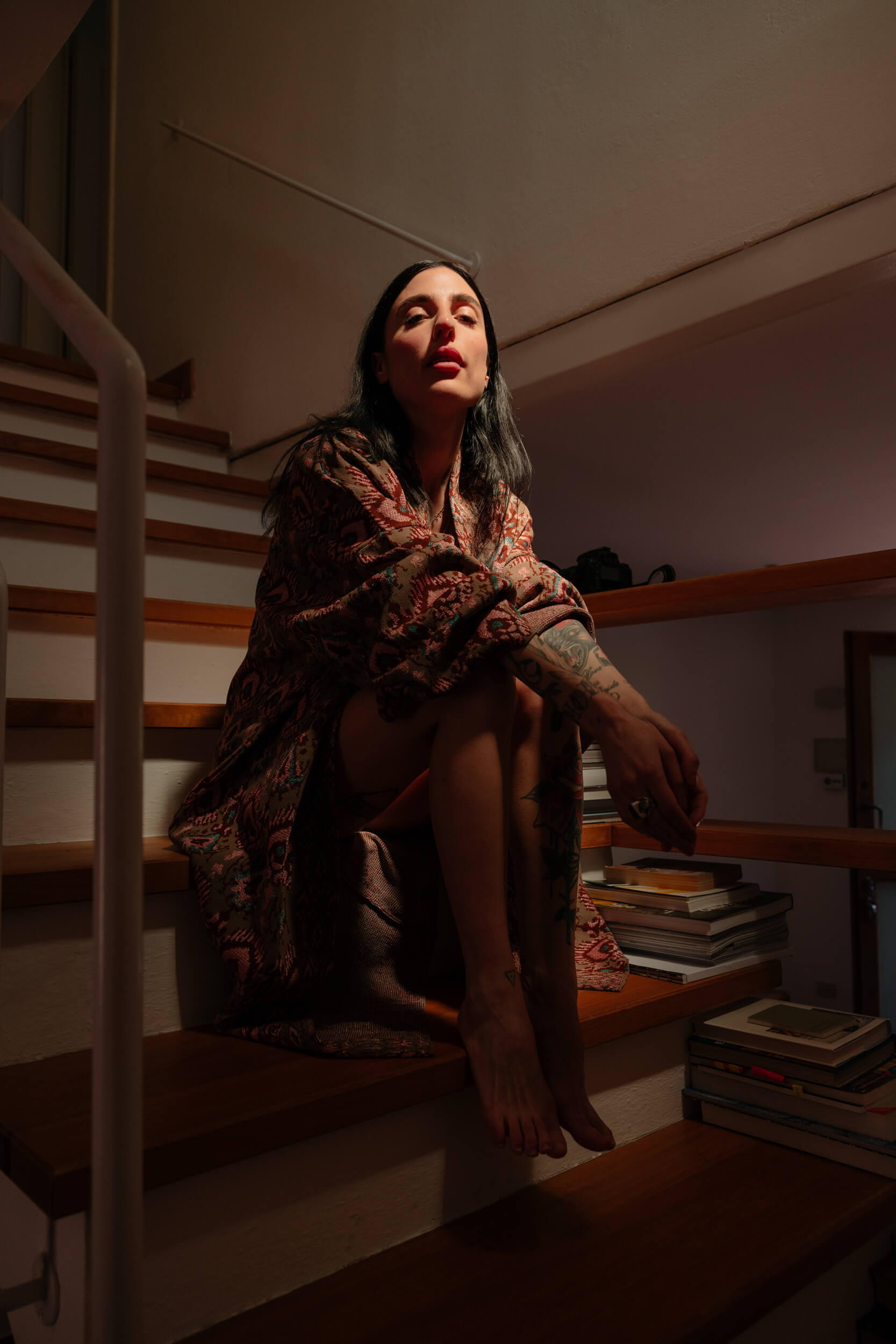
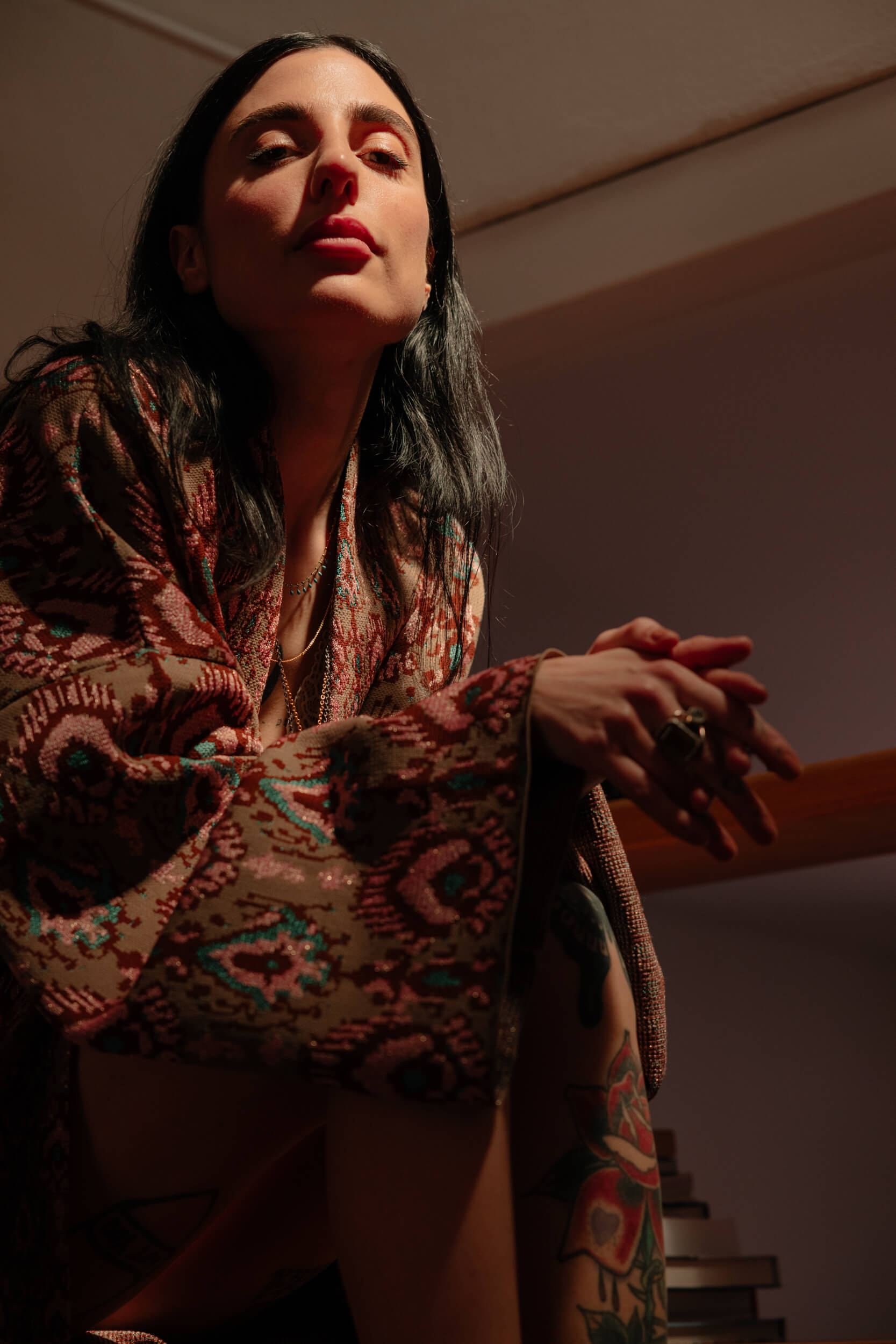
In the beginning, you say that “Passaparola” (word of mouth) is like a book club: if you were to imagine your dream book club, who would you want to be in it?
I’m lucky enough to already have a sort of book club, with Chiara Valerio, who’s the creator and curator of this collection, and with my friends who are avid readers. One of these, lucky me, is Carlotta Sanzogni, who’s part of the team of Libraccio, so I get texts, news, and various books from them. Working in the world of book publishing offers these kinds of advantages, too, everyone can give you great book recommendations and then we have phone talks and round tables about them. These days, I’ve been presenting lots of books that are not mine and this also allows me to meet many writers, and it’s so nice.
I’ve been reading a lot lately, more than usual.
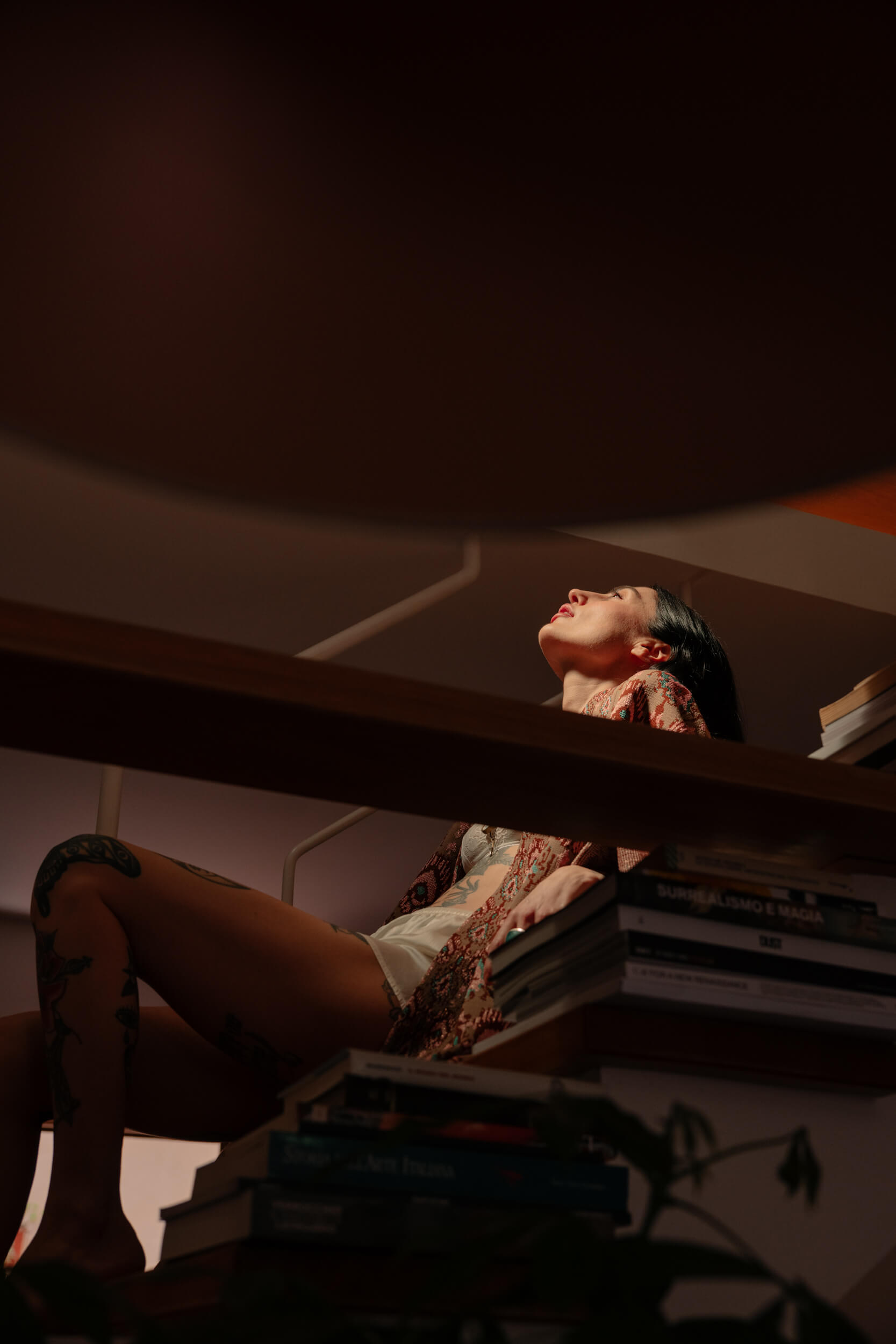
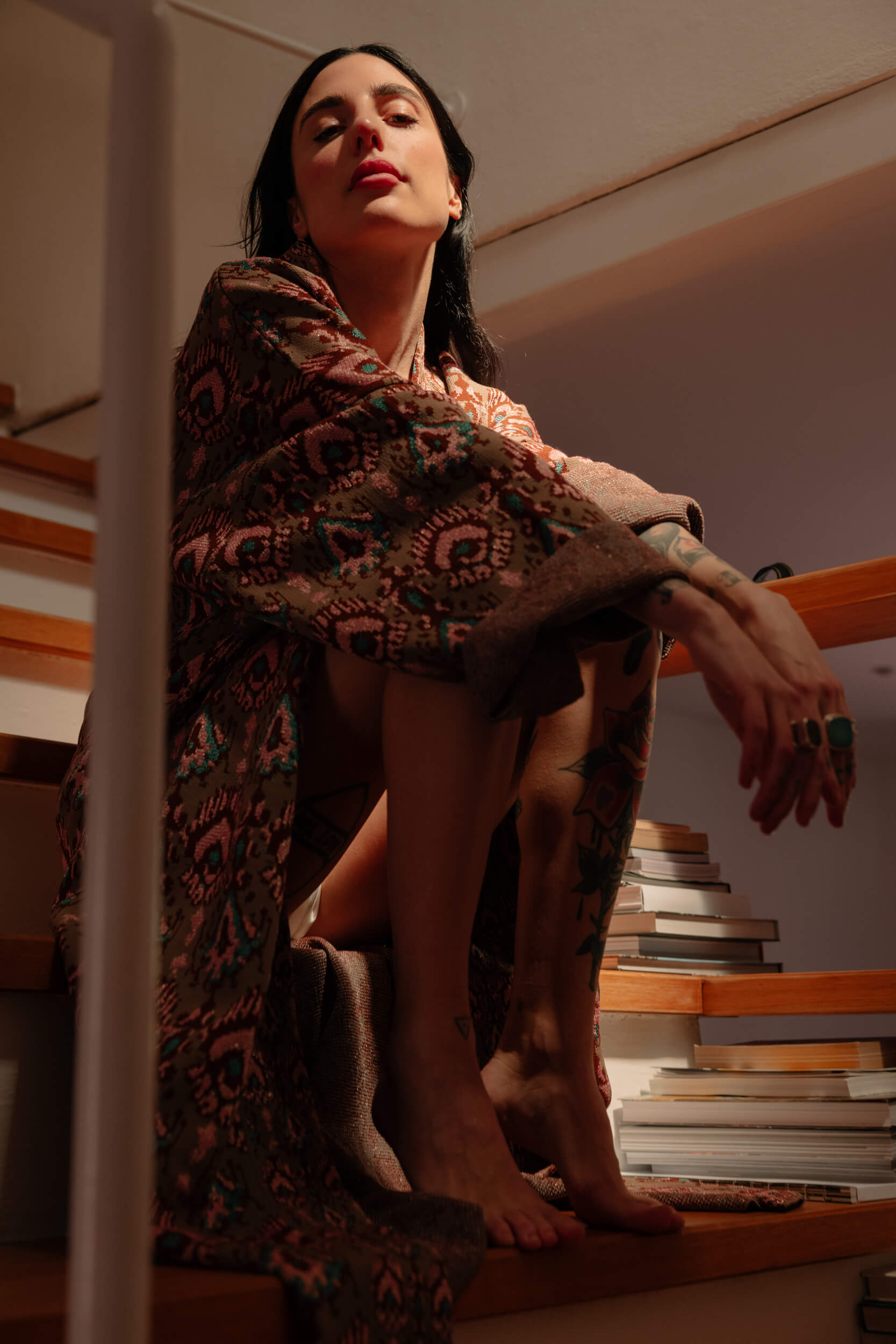
Many other people must have already asked you this question, but was Márquez an instinctive choice, or did you have doubts, did you have to think about it?
It was actually an instinctive choice, yes. I was doing an interview with Chiara Valerio on Radio3, for her program “L’isola deserta,” and on that occasion, they asked me: “What book would you bring with you on a desert island?”. I hadn’t thought about the answer before the interview, I wasn’t prepared, I wanted to see what my guts would have suggested me to say, and without any second thought, I said Márquez. After the interview, we took some time to chat and discuss female characters, we compared our favorites as if they were alive. We looked at each other and said: “You know, it would be interesting to do something like a word of mouth.” I’ve always believed that Macondo is so similar to Marina di Castagneto Carducci, so in the end, we decided to do it.
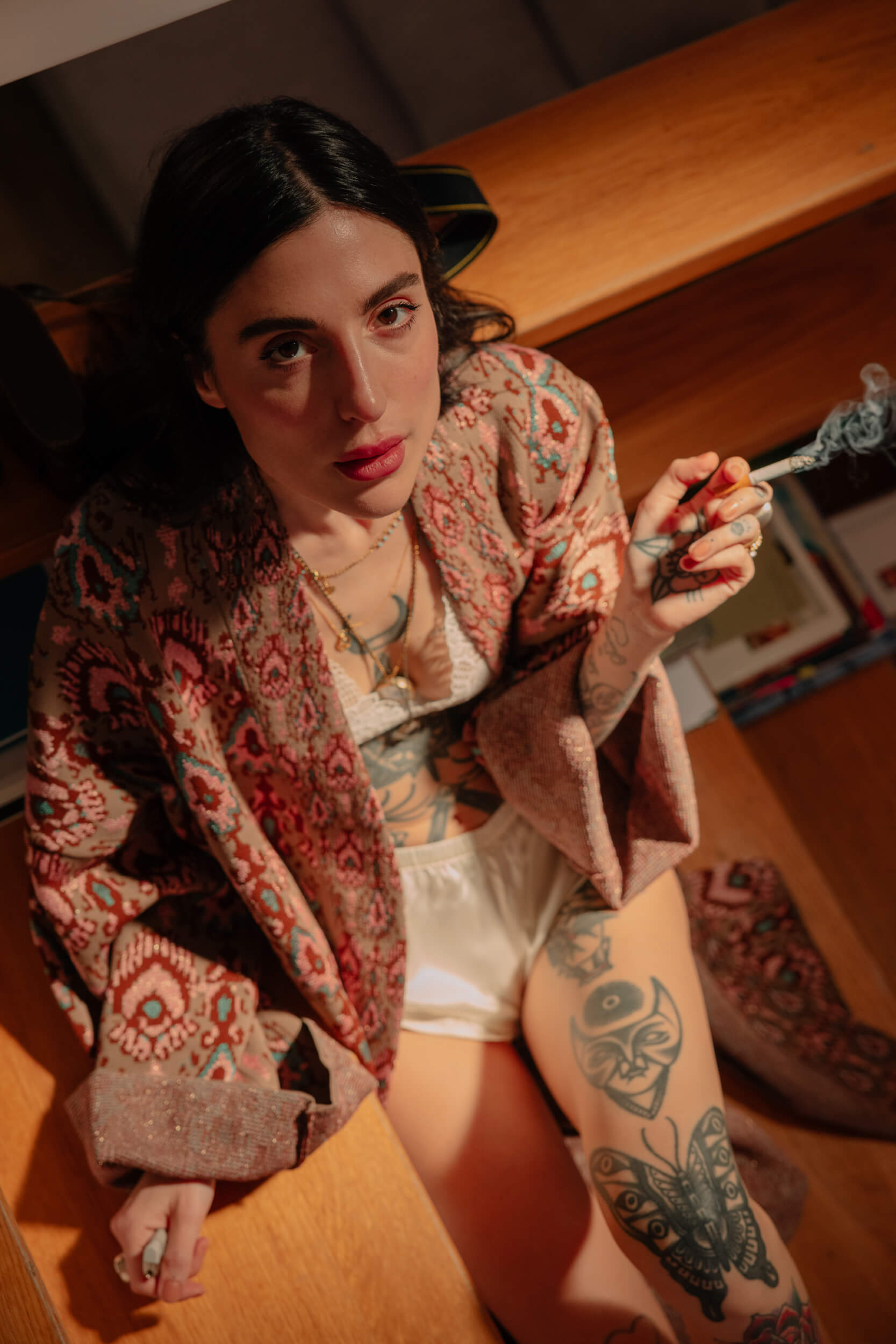
“I’ve always believed that Macondo is so similar to Marina di Castagneto Carducci…”
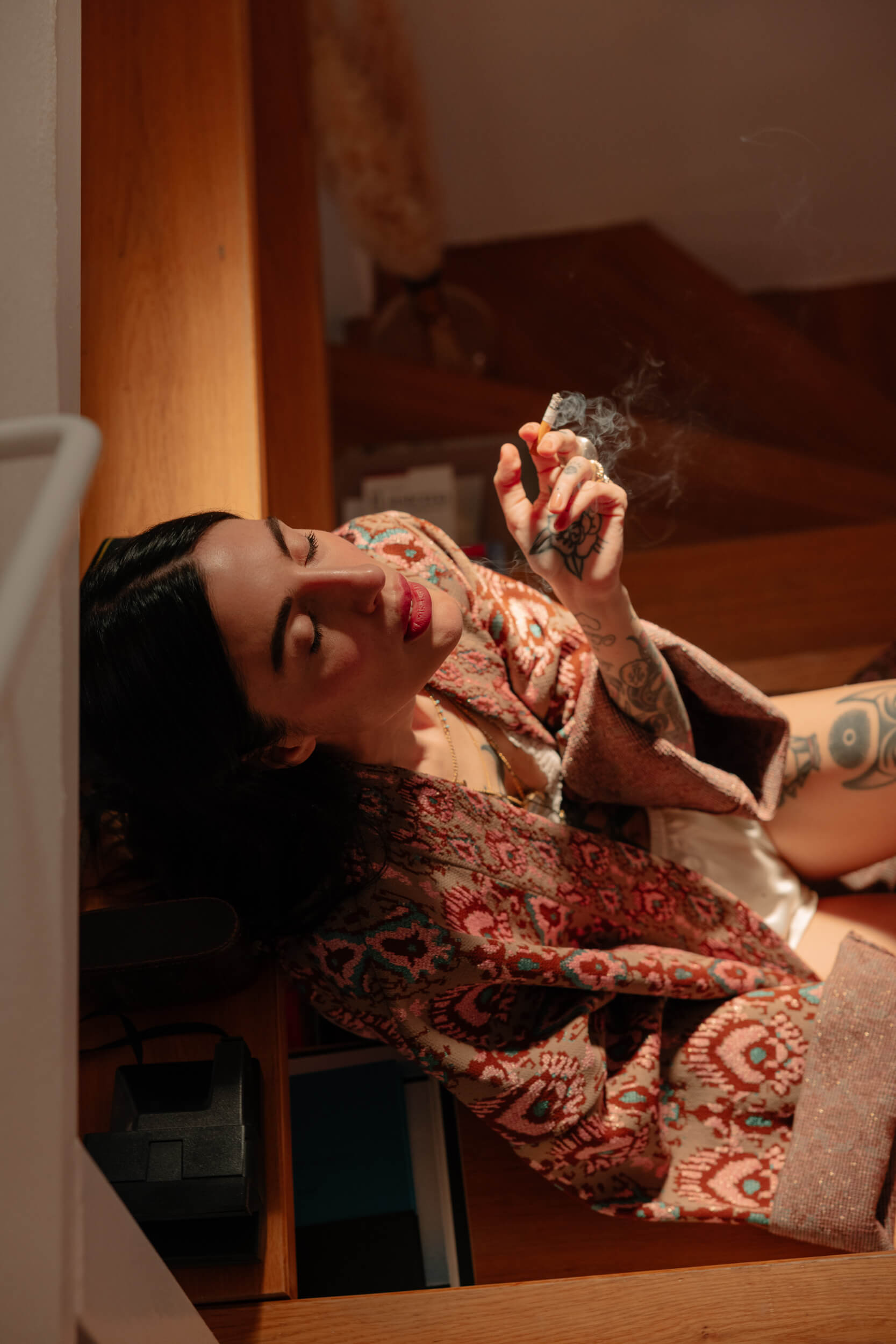
Marina di Castagneto is obviously your home, and now you actually have a brand-new house. What’s “home” to you?
Home to me is what’s closest to peacefulness. It’s when I manage to disconnect from everything. Obviously, in Marina di Castagneto Carducci all the anxiety, frenzy, and pressure that comes from the outer world disappears. It’s like this place is out of space and time. My house in Florence is also the place where I work, there I have connections, it’s the place from where I leave for travels because it’s connected to Milan and Rome by train, it’s where I always am for work reasons. Marina di Castagneto Carducci is, instead, a real disconnection because it’s off-center and so, it allows me to really pull the plug.
There, everything remains unchanged every time I go back, there I have my friends, and it’s like nothing’s happened and as if time has never passed.
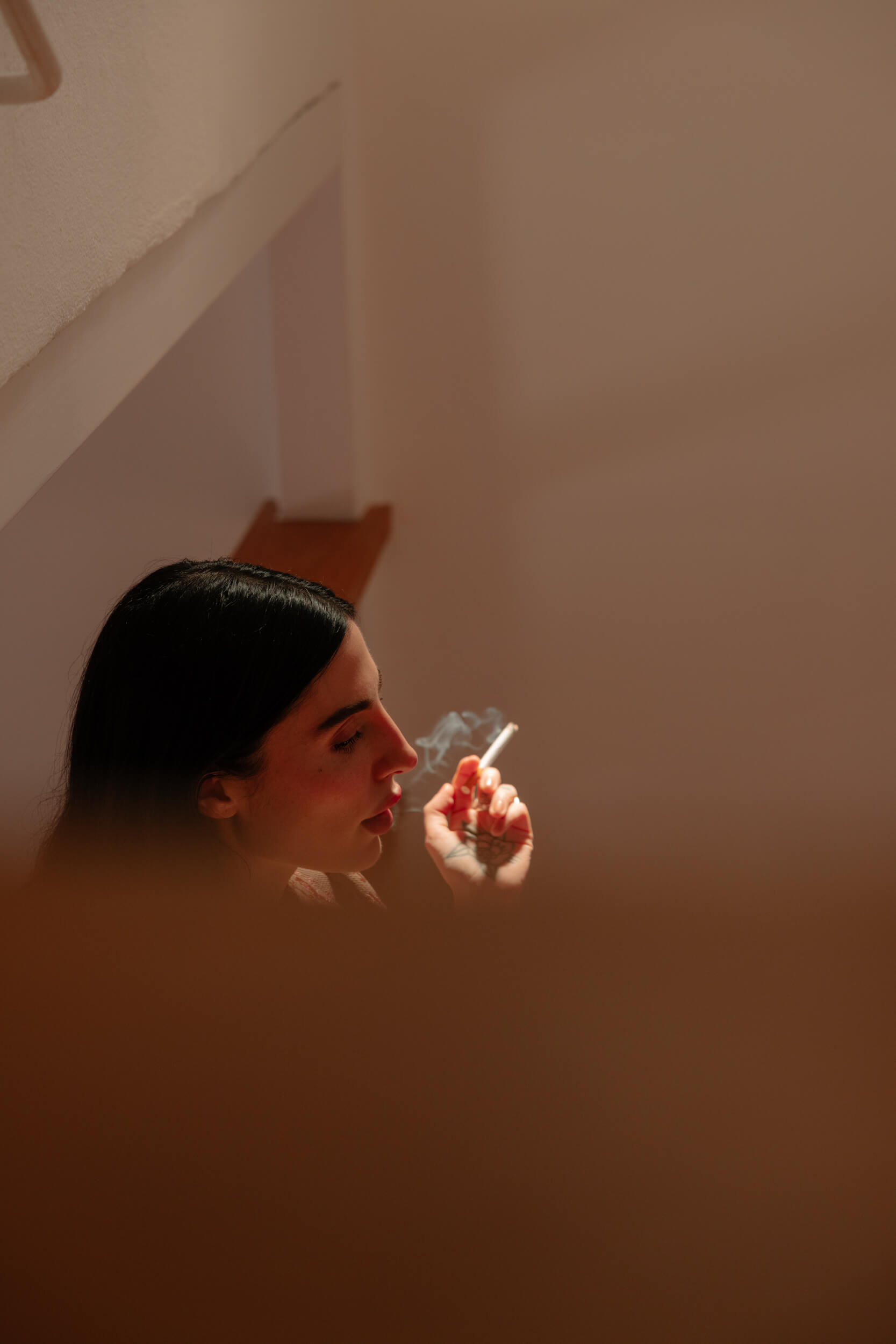
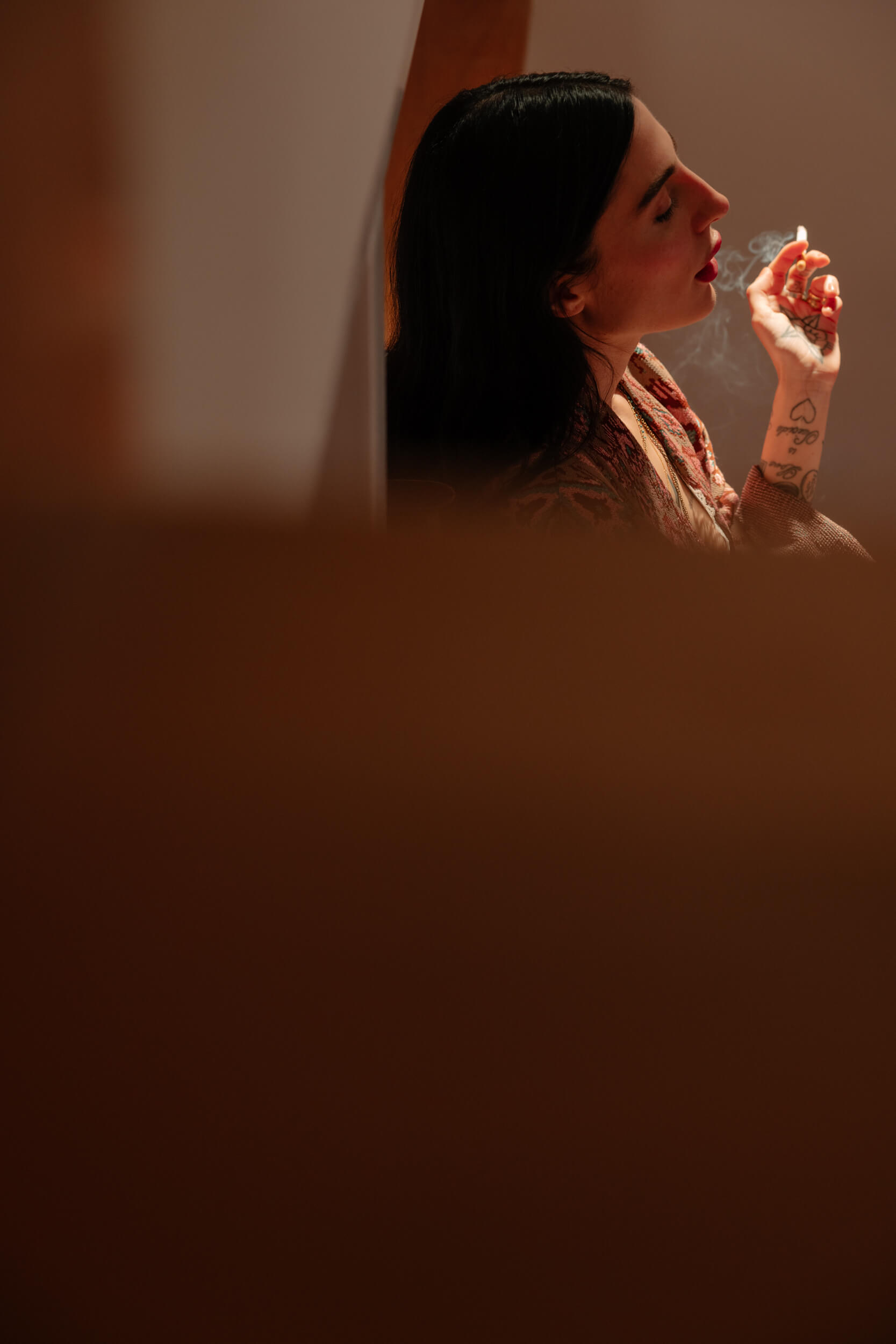
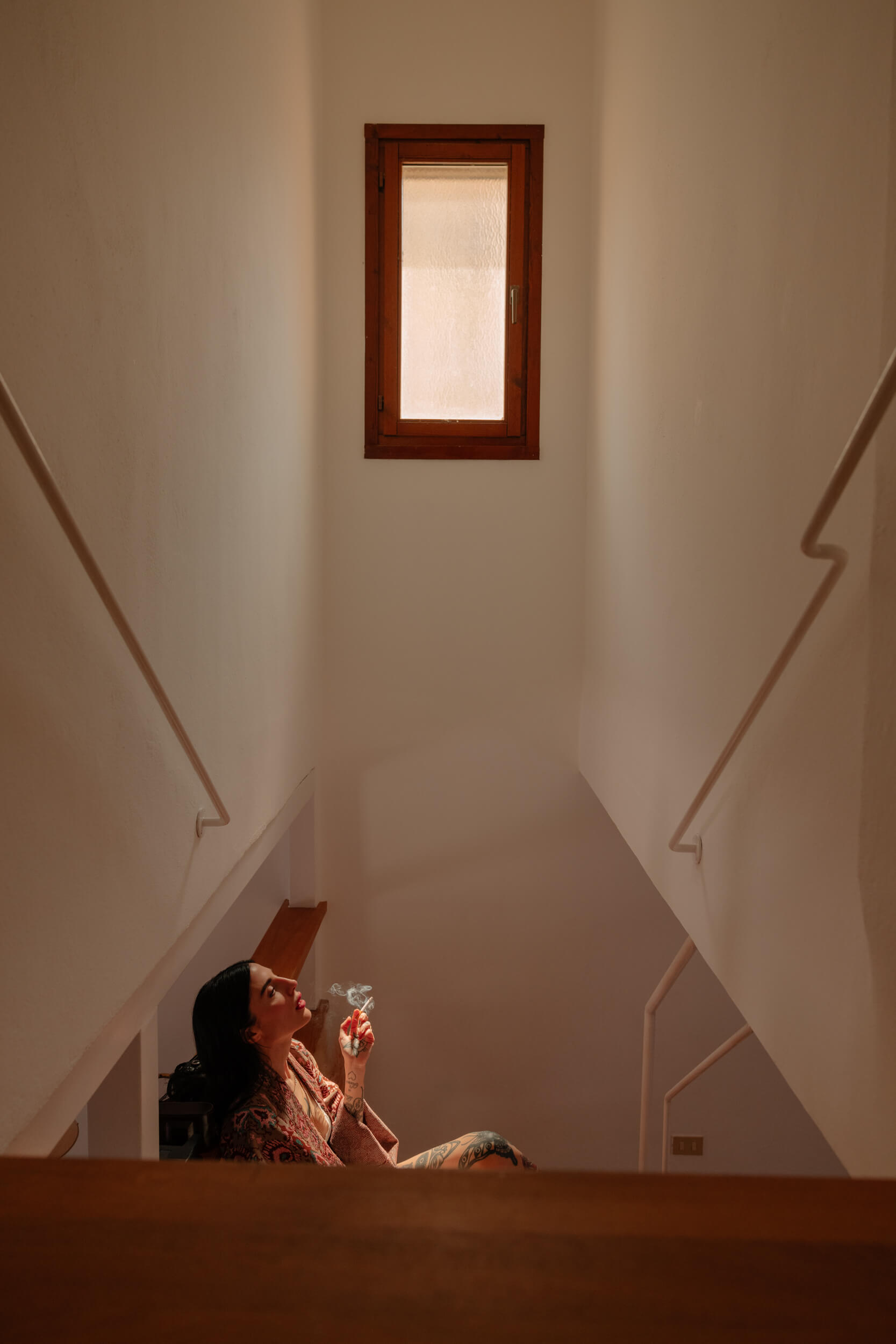
There’s a part of the book where you talk about the windows, houses, and the salty air, which I really loved, and you also say that nature, in one way or another, always wins. How has your way of approaching nature changed over the years?
I’ve grown up here in Marina, which is a wild place, the sea is never calm. There’s this memory I have about the fact that I must have seen it still no more than ten times in my whole life because subject to fairly strong currents. So, the first things that I learned to recognize as a kid, also thanks to my grandma who would teach them to me, were the winds, to understand where they blow from, give them a name, to be able to tell whether we could go to the beach or not, whether the tide was in our favor or not because if the sand storms reached the hinterland, they were unmanageable.
My connection with the elements of nature has always been very strong. For me, today, it’s no doubt synonym with going back home. The first thing I like to do when I’m in Marina is take my shoes off: during the hottest months, I’m in my bikini or underwear all the time; even in winter, when I get there, the first thing I do is going to the beach, no matter what the weather is like. It’s a total reconnection which you can’t really have in the city, even though I live in a tiny place in the hills, in a field, but it’s not the same thing. I grew up falling asleep to the sound of sea waves, of an always rough sea, so, when I go back to the city from Marina, the first nights, it always seems so weird not to hear that sound, which basically lulls you.
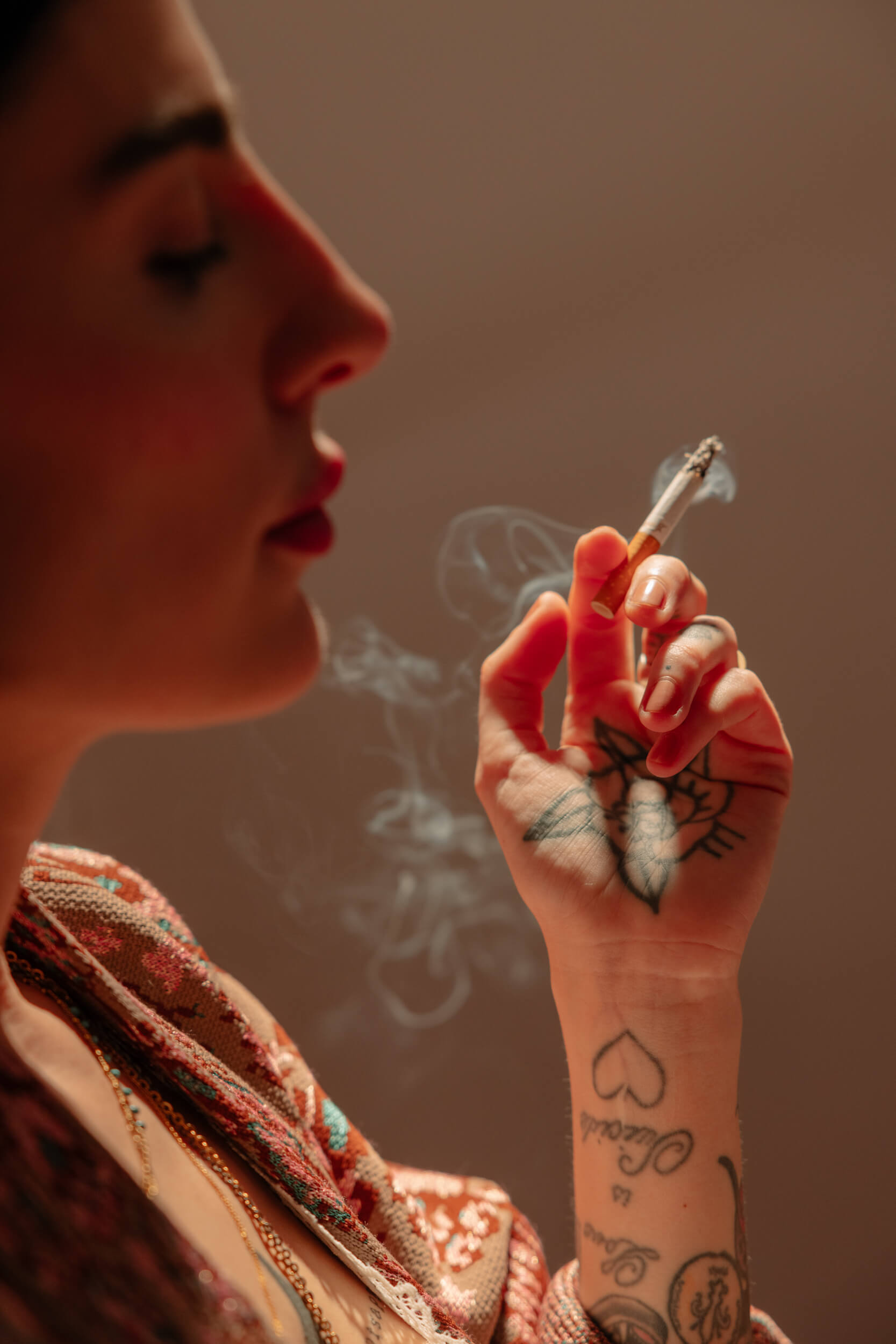
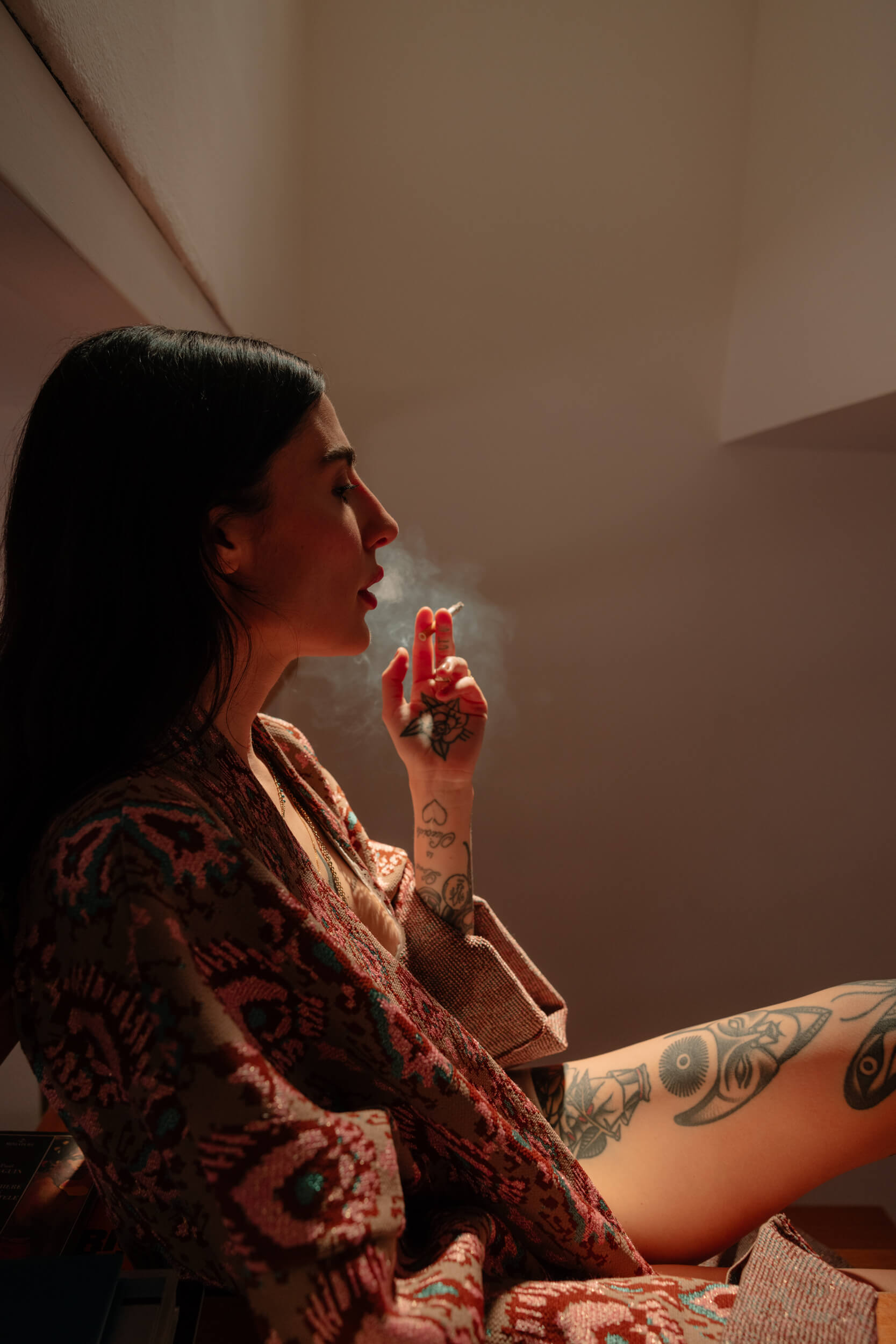
So, when you come back and hear them again, it’s the most normal thing in the world to you.
The nicest thing in the world! When I exit the famous Variante Aurelia, the first thing I do is roll down the windows in that lane full of pines, to smell the air that’s so different. The salty air, the smell of the sea… I can’t wait until I can get out of the car, so, on the road towards the seafront, I roll down all the windows and enjoy it. And regularly, ever since I got my driving license, so 16 years ago, I get emotional, in that moment, when I roll down the windows and smell the sea air, I get emotional.
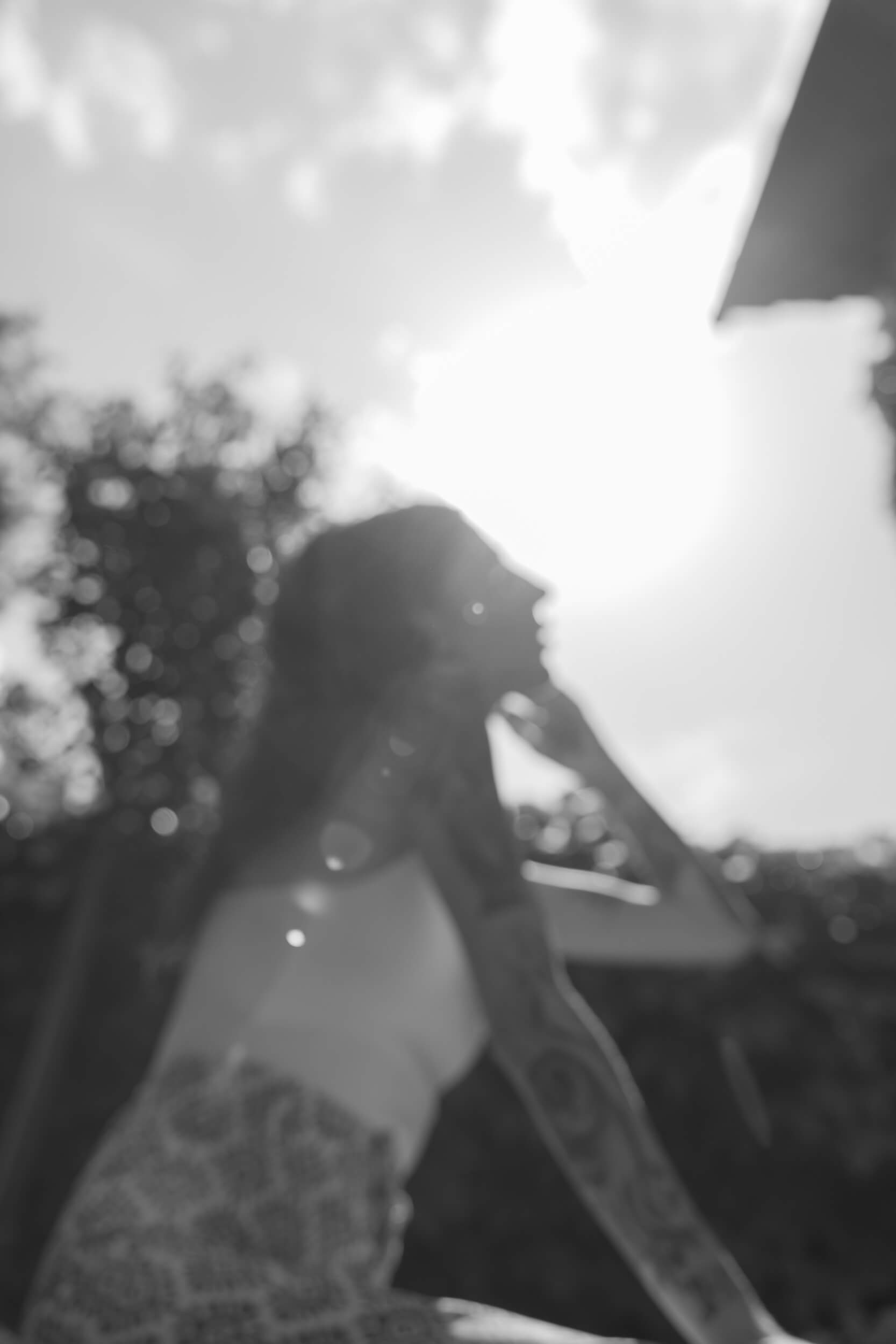
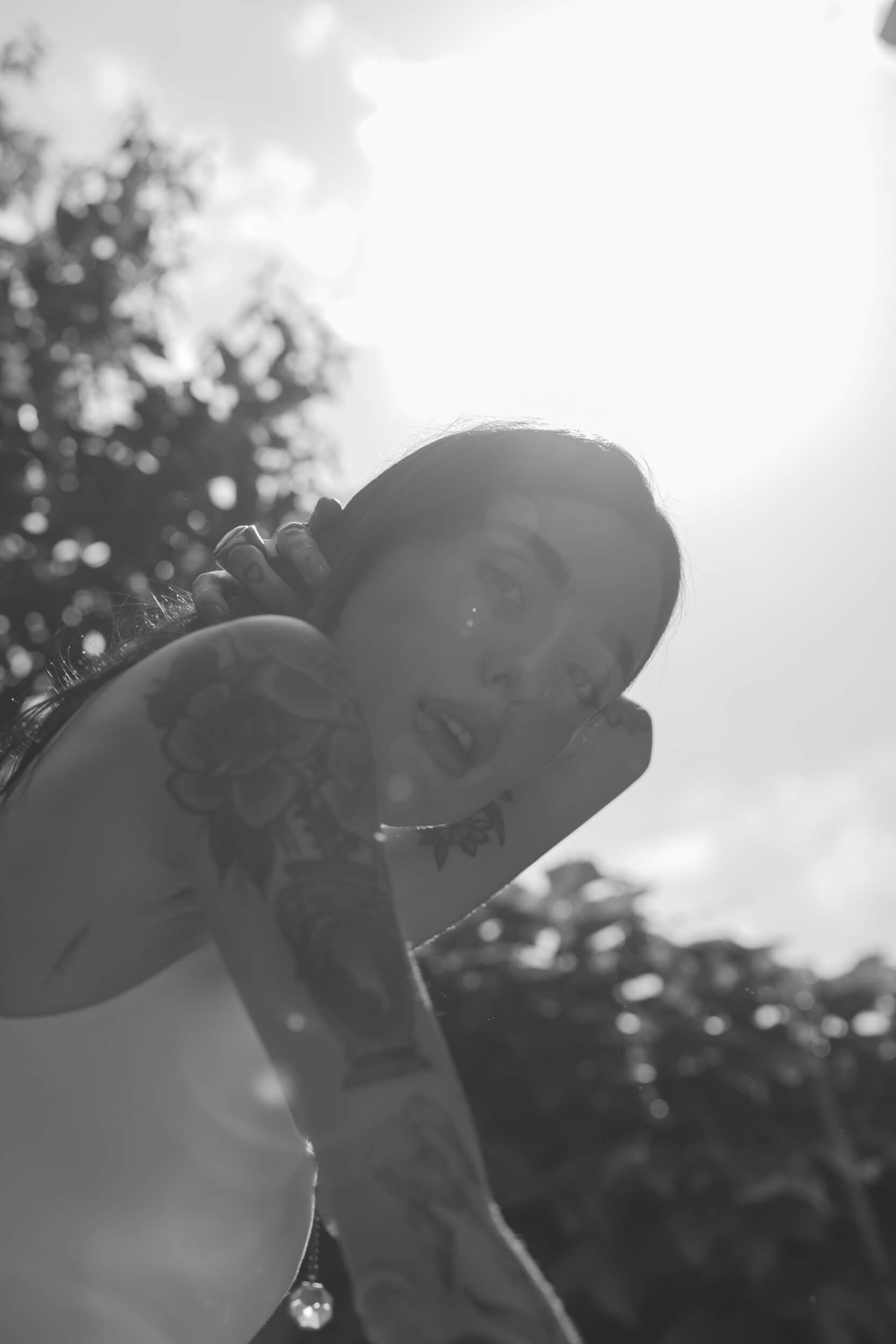
“at that moment, when I roll down the windows and smell the sea air, I get emotional.“

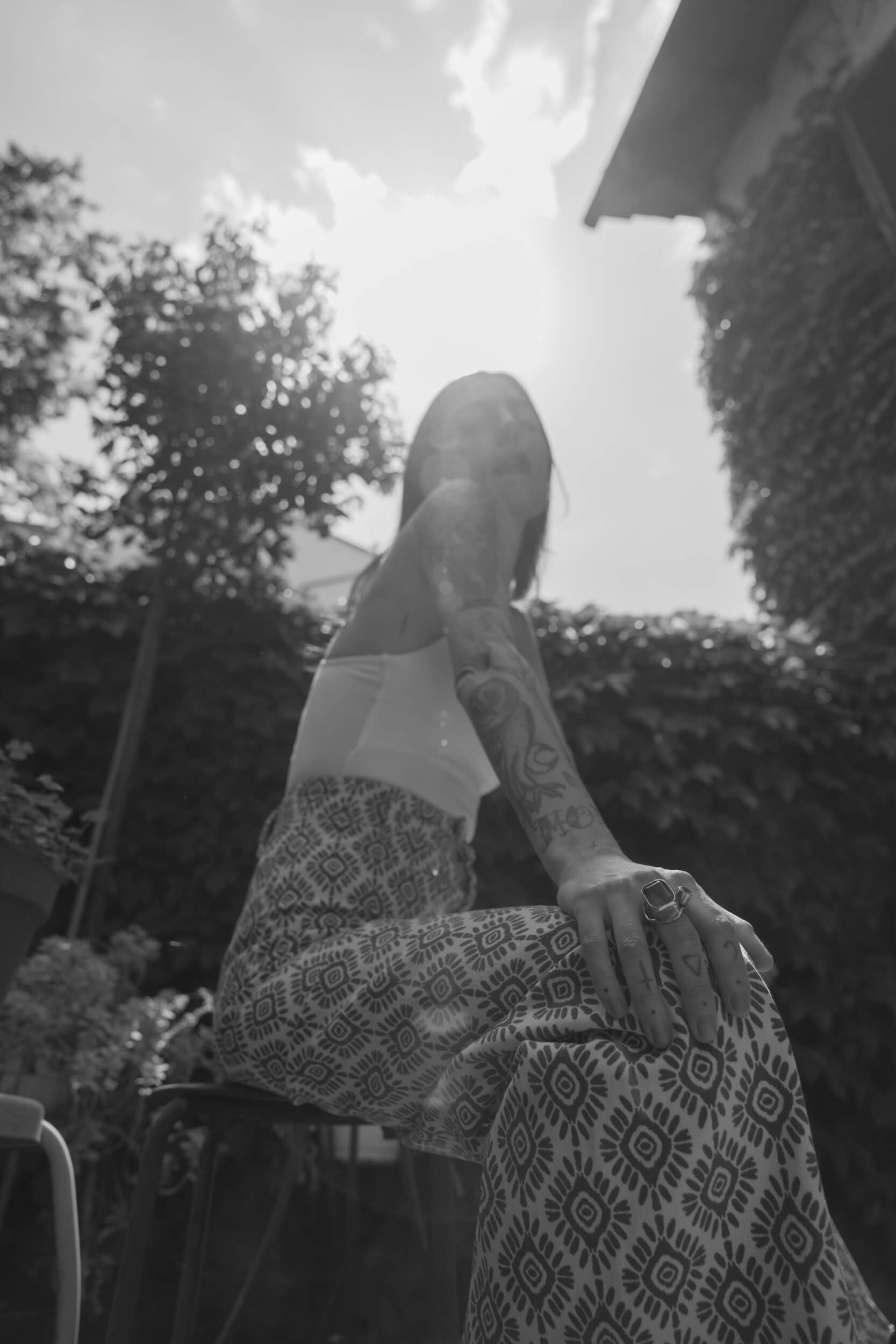
Another quote of yours: “Power makes people blind.” What’s the form of blindness that pisses you off the most these days?
Dullness.
Which is the lack of confrontation, the complete self-referentiality, the incapability of thinking beyond the moment, of understanding that the only way to really evolve is getting out of the bubble, so necessarily contaminating and crashing against the outer world, but also opening a dialogue. On the contrary, the Internet above all is becoming a means through which it’s not easy to dialogue anymore, so it’s become essential to find other languages, other platforms, and other means. I’m more and more closing in on writing books, articles, and short stories because they also allow me to find that complexity that we’re losing nowadays.
Dullness is for sure what scares me the most.
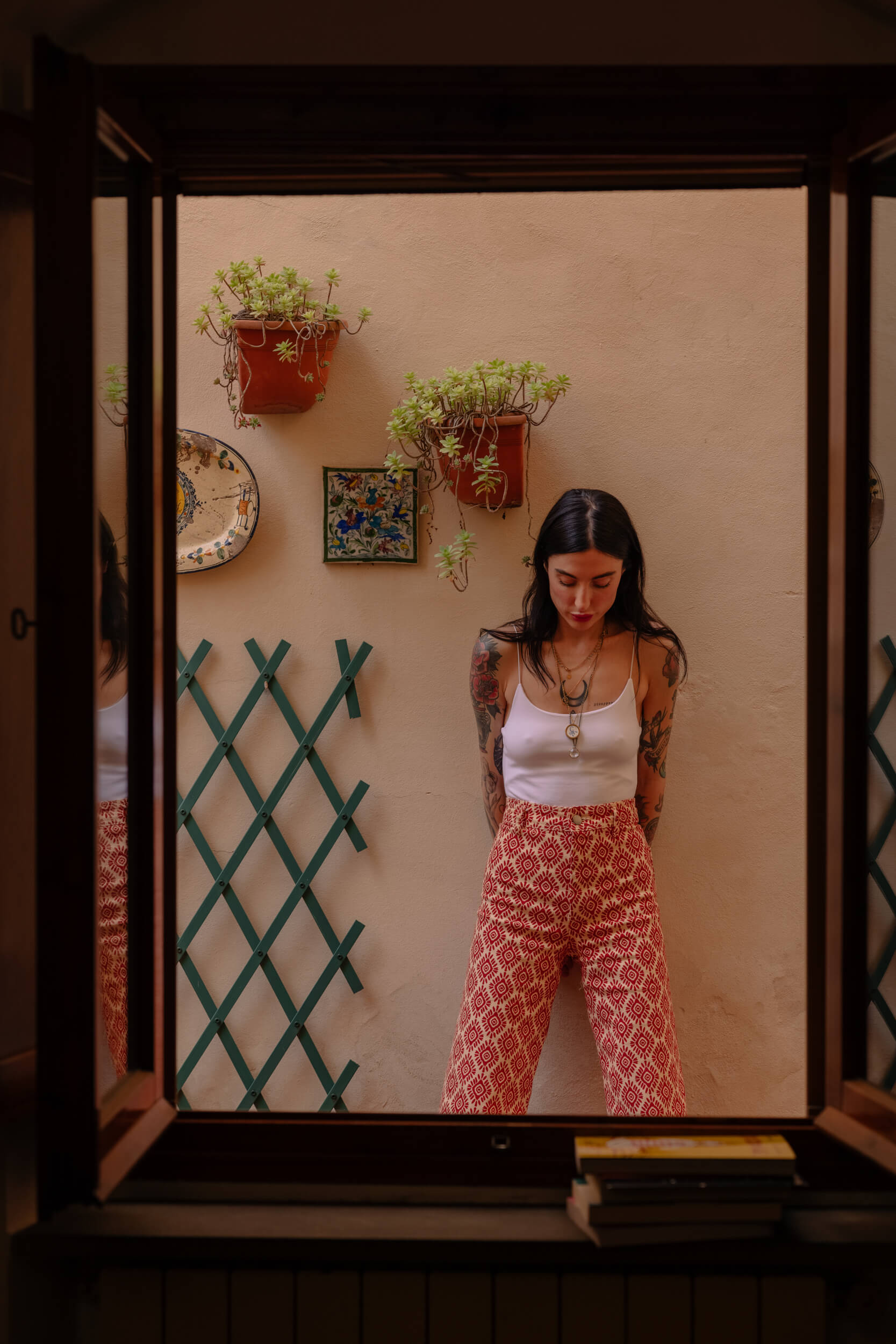
On this note, I also wanted to discuss with you the part that made me smile, where you write about technological isolation, what happens and how it transforms. Do you ever feel the need to isolate, up to a point where you hope it happens?
My erotic dream is a place where the Internet connection is broken!
Three days, one week… It really is the Big Erotic Dream for me! In fact, when sometimes in Marina the repeater can’t contain all summer tourists, especially during these last two years of the pandemic, where we couldn’t travel abroad and everyone went on holiday in Italy’s tourist destinations, the repeater couldn’t handle it and would go off, and some days, as I say in the book, people would really lose their minds because in those situations you can’t make phone calls, the POS doesn’t work, you can’t send texts or WhatsApp messages, it was full chaos. The only area where the Internet works here is the Aurelia, the road that takes to the city of Donoratico, and seeing this queue of people with their arms out of the car window to get some signal is so much fun to me. It’s my erotic dream, no doubt.
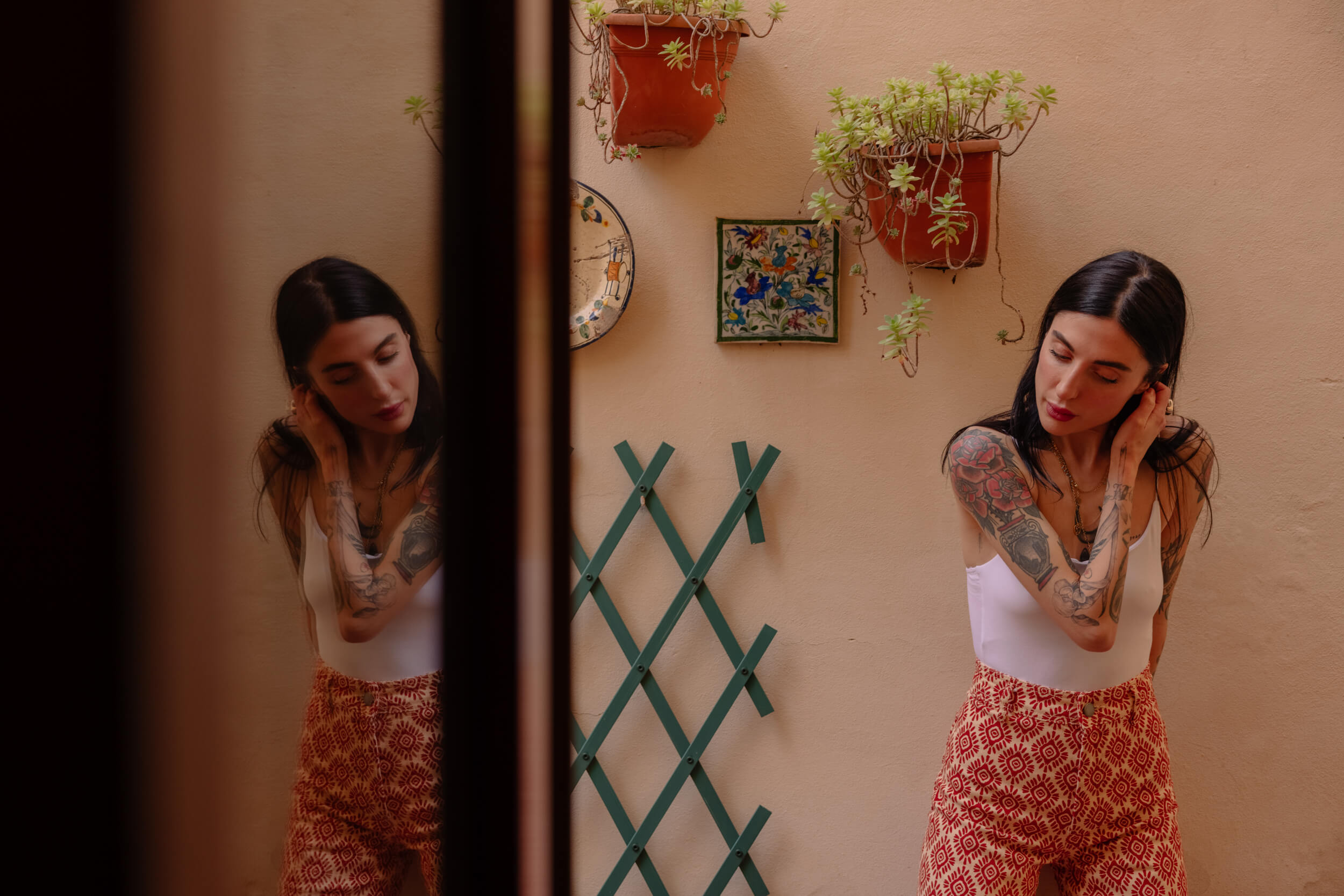
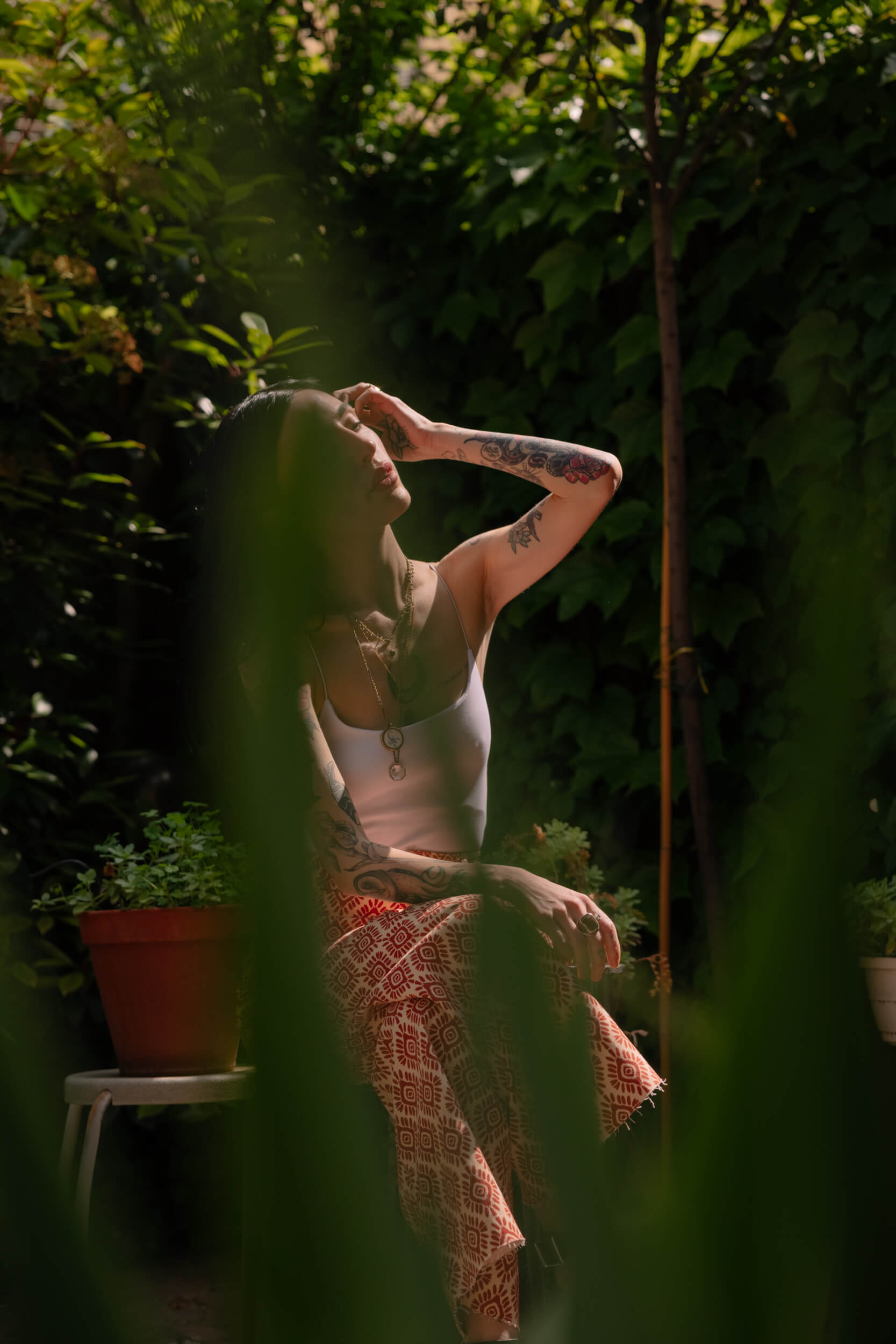
When you go back to Marina, how do your space and time transform?
Home is not the four-walls building anymore, but it becomes all the spaces where I can be contained: the beach, the bar next door, the 15-meter-long street that I walk to get to the beach, my news vendor, my friends’ lido, the pine forest. Those places become my space of action. Time doesn’t exist, instead, because it’s like it never stopped, like if I never left, and when I leave, I know it’s never the last time. It’s the most constant thing I’ve ever had in my whole life.
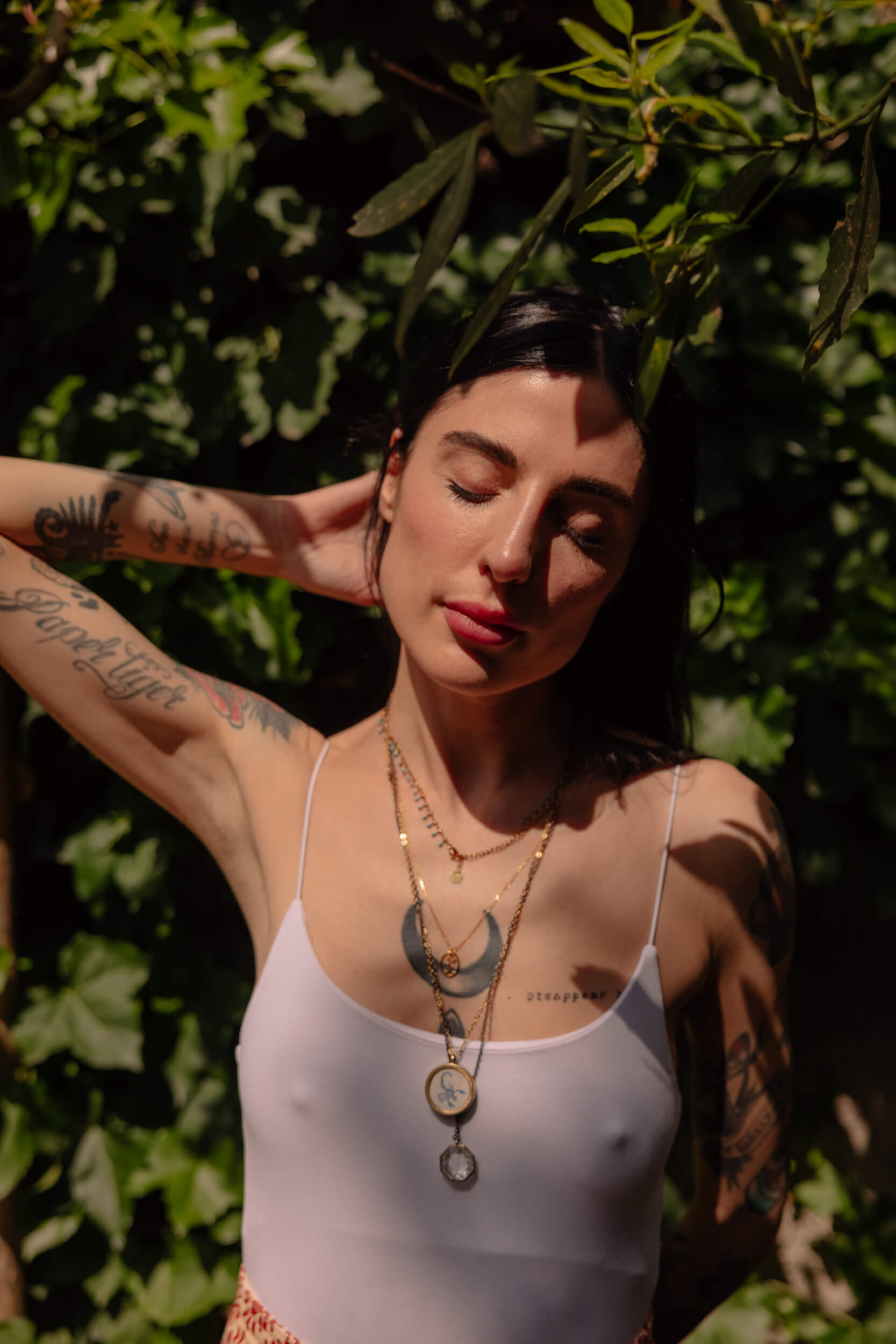
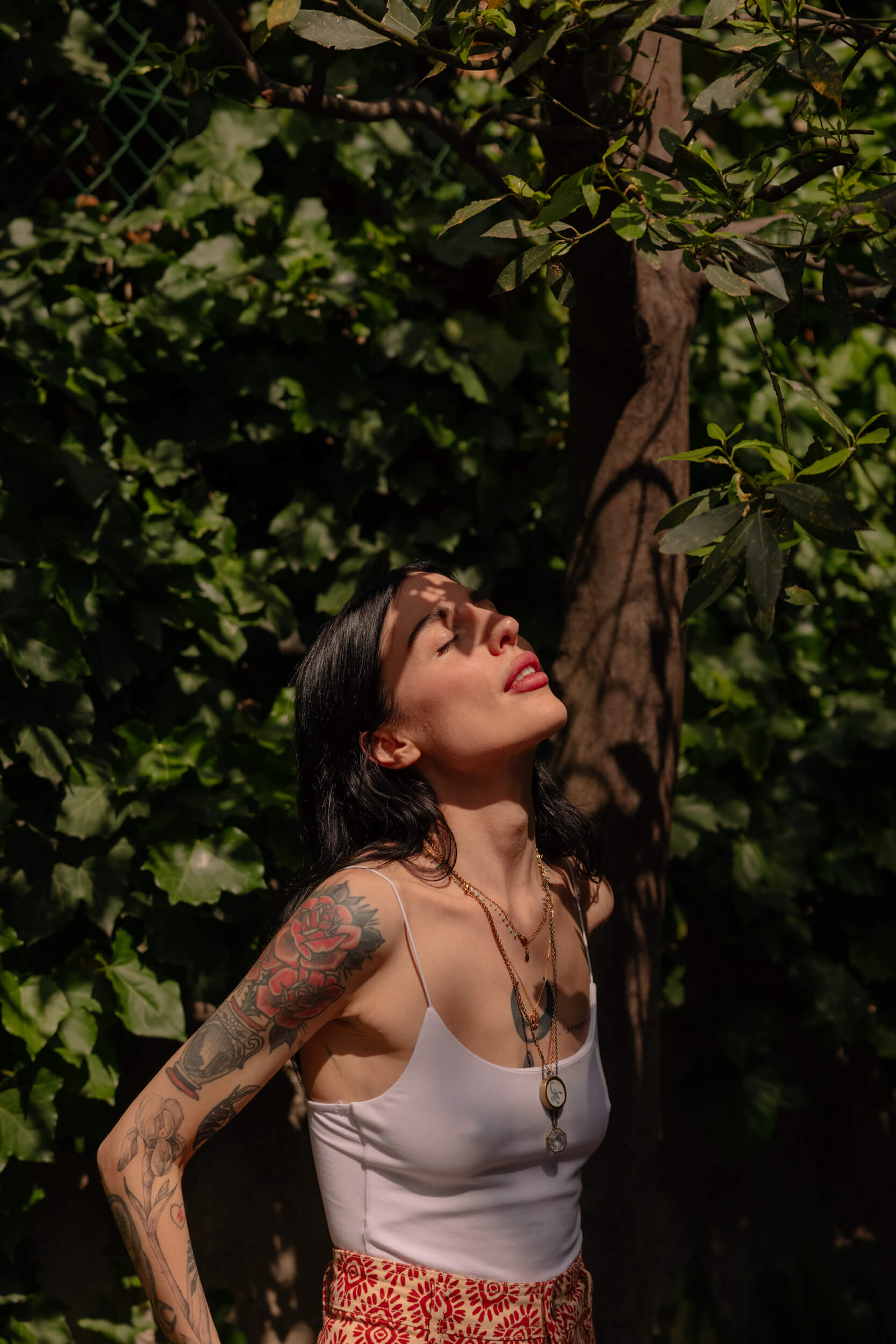
“Time doesn’t exist, instead, because it’s like it never stopped.”
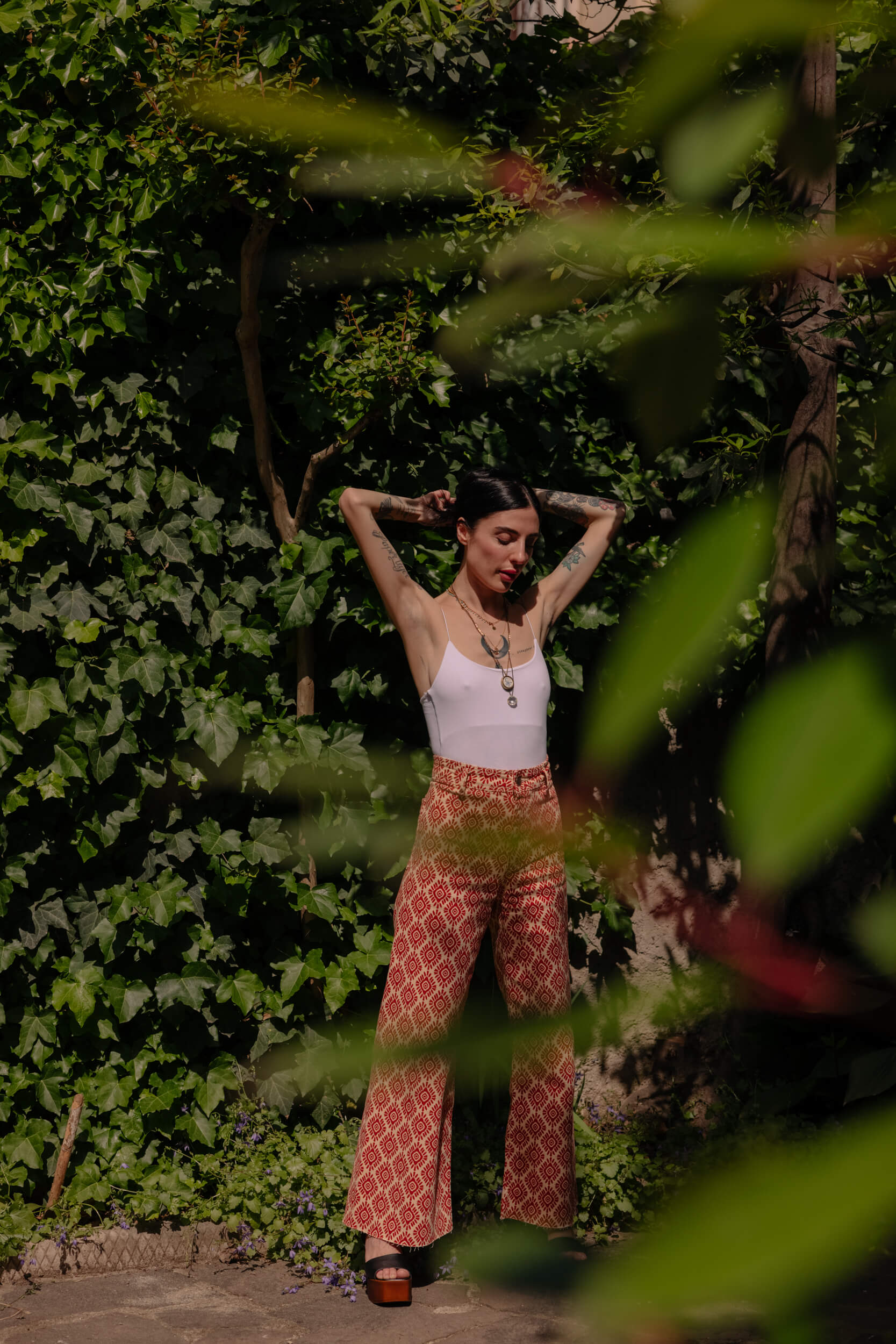
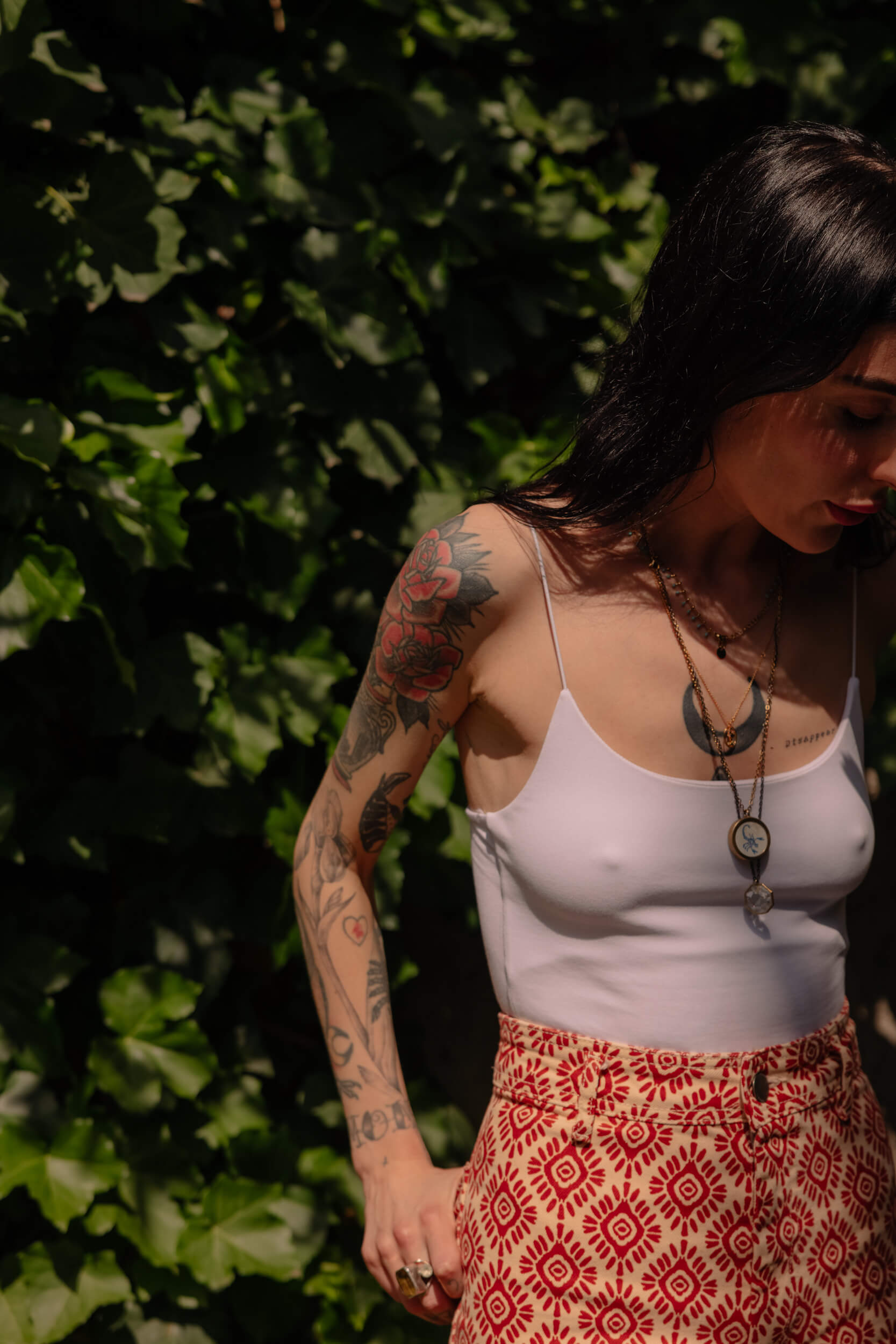
You discuss the importance of re-writing female roles: you’ve obviously done it. What other female roles would you like to give importance to? While writing this book, did you already have in mind someone else whose story you’d like to write about?
Great question! I’ve always dreamt of reshaping in an ironic key “Wuthering Heights,” the relationship between Catherine and Heathcliff, which is terrible. [laughs] I’d like to comically deconstruct the story. I’ve never thought about which other books I could approach from this point of view, actually, there are so many. Yesterday, I was chatting with Nadia Terranova, the author of a wonderful book called “Trema la notte,” where the protagonists are almost all women of various ages, generations, and social classes, and they’re not all nice or good looking, but everyone has their own rare complexity, they’re multi-layered. The fact of finding again this tridimensionality heartens me so much, and it also makes me get lost in books. It would be nice to start writing reviews or talk, during the presentations of the books I host, about the characters, giving them depth, discussing how we imagine them, why they’ve gotten where they are, and where they’re heading to.
I’d love it if we started to talk about the characters as if they were alive also during presentations, and if everyone could talk about them from a personal point of view.
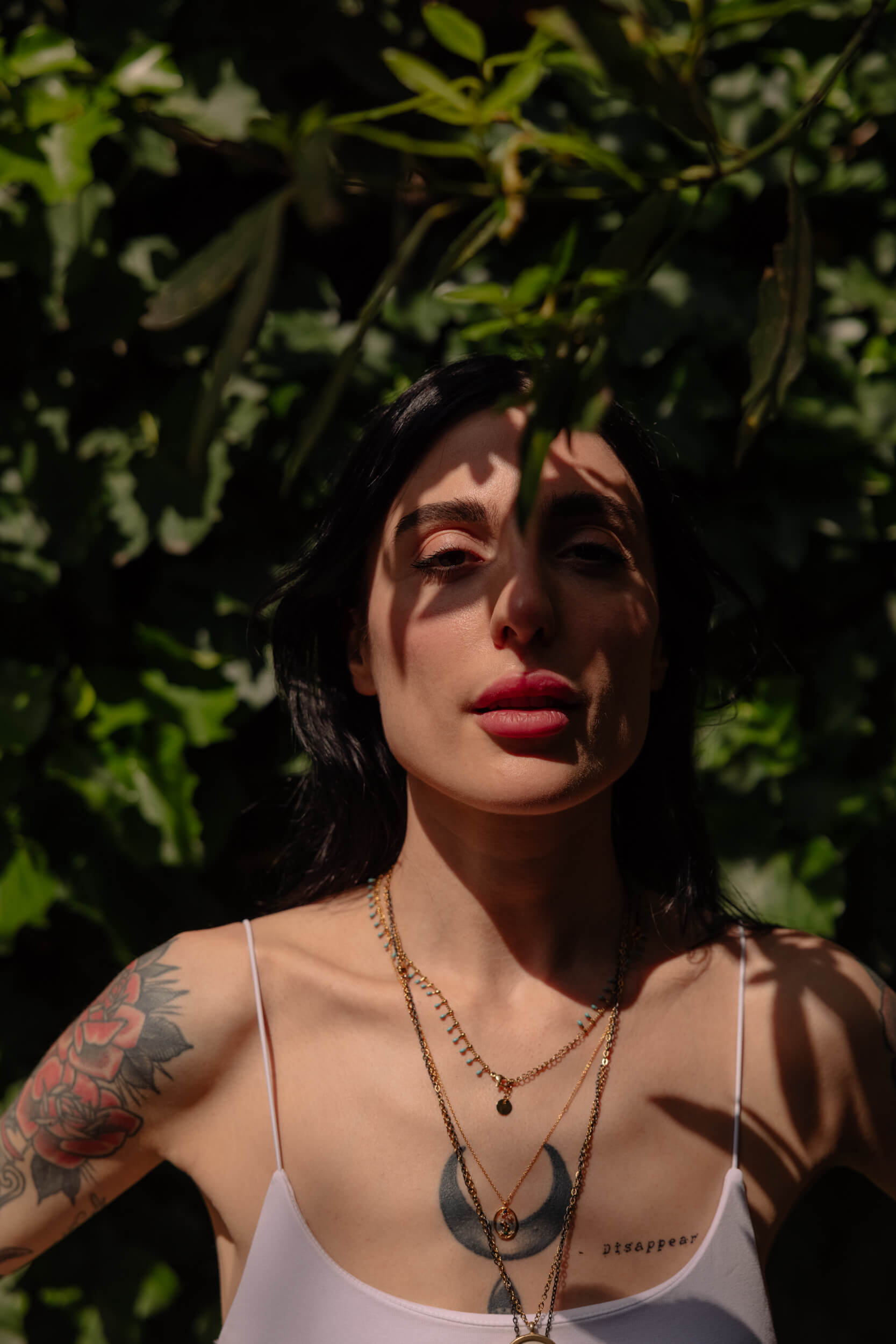
In fact, it always happens to me, for example, that after I finish a novel, I start missing the characters, or perhaps sometimes I also miss hating the characters I didn’t like. I read with so much (maybe too much) empathy, I throw myself in books, I like reading them in one or two days, it would be very cool for crazy people like me, but also for those who are not like me [laughs].
During presentations, we should let the authors speak and put it like, “Okay, let’s do this game, let’s take the character and understand their complexity, let’s try and deconstruct all that could be a prejudice towards them.” Similarly, we could spend hours talking about Humbert Humbert and Lolita, a series of characters from the history of literature who seem nondimensional, while actually being hyper complicated. I’d love to spend days and days talking about them with their authors.
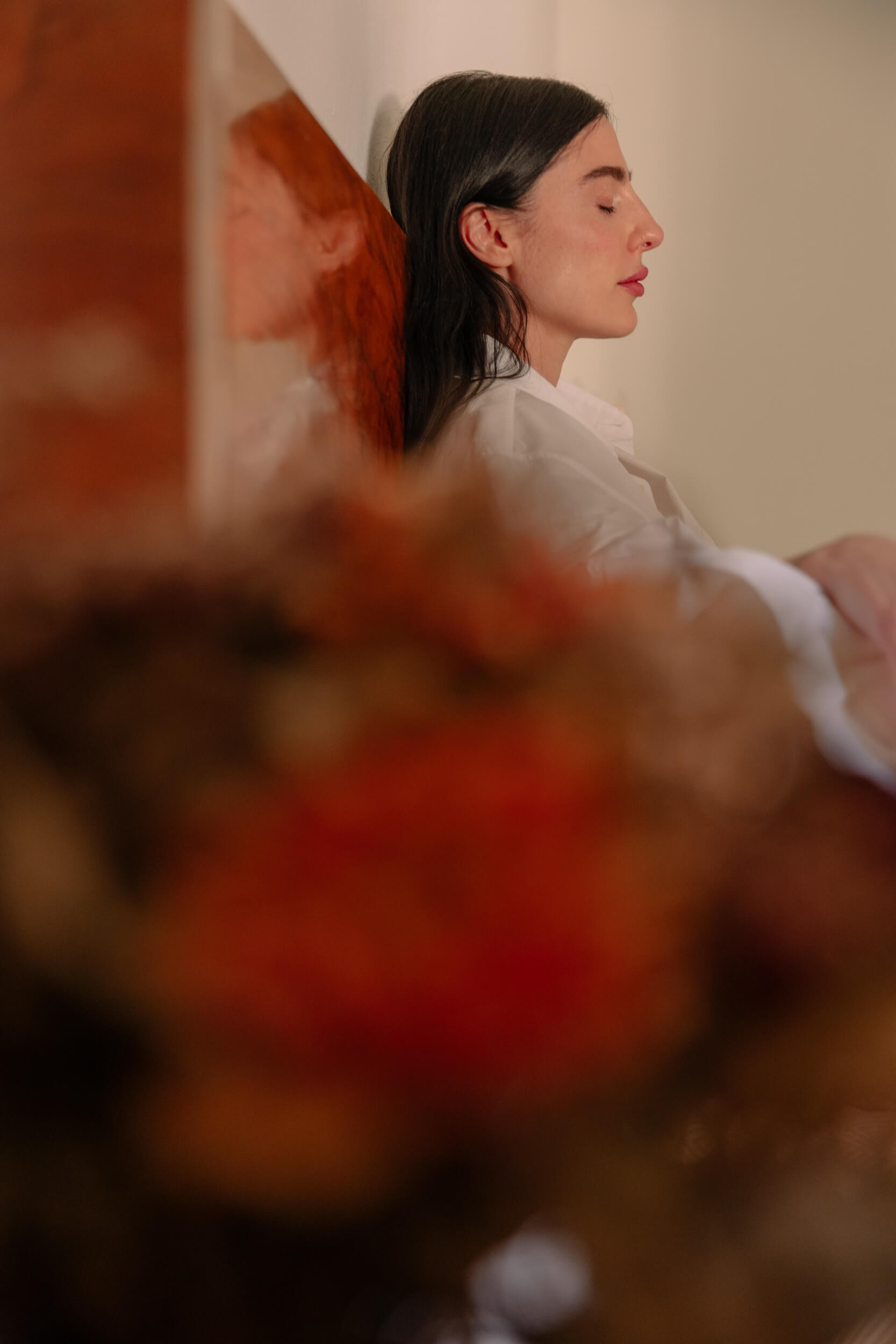
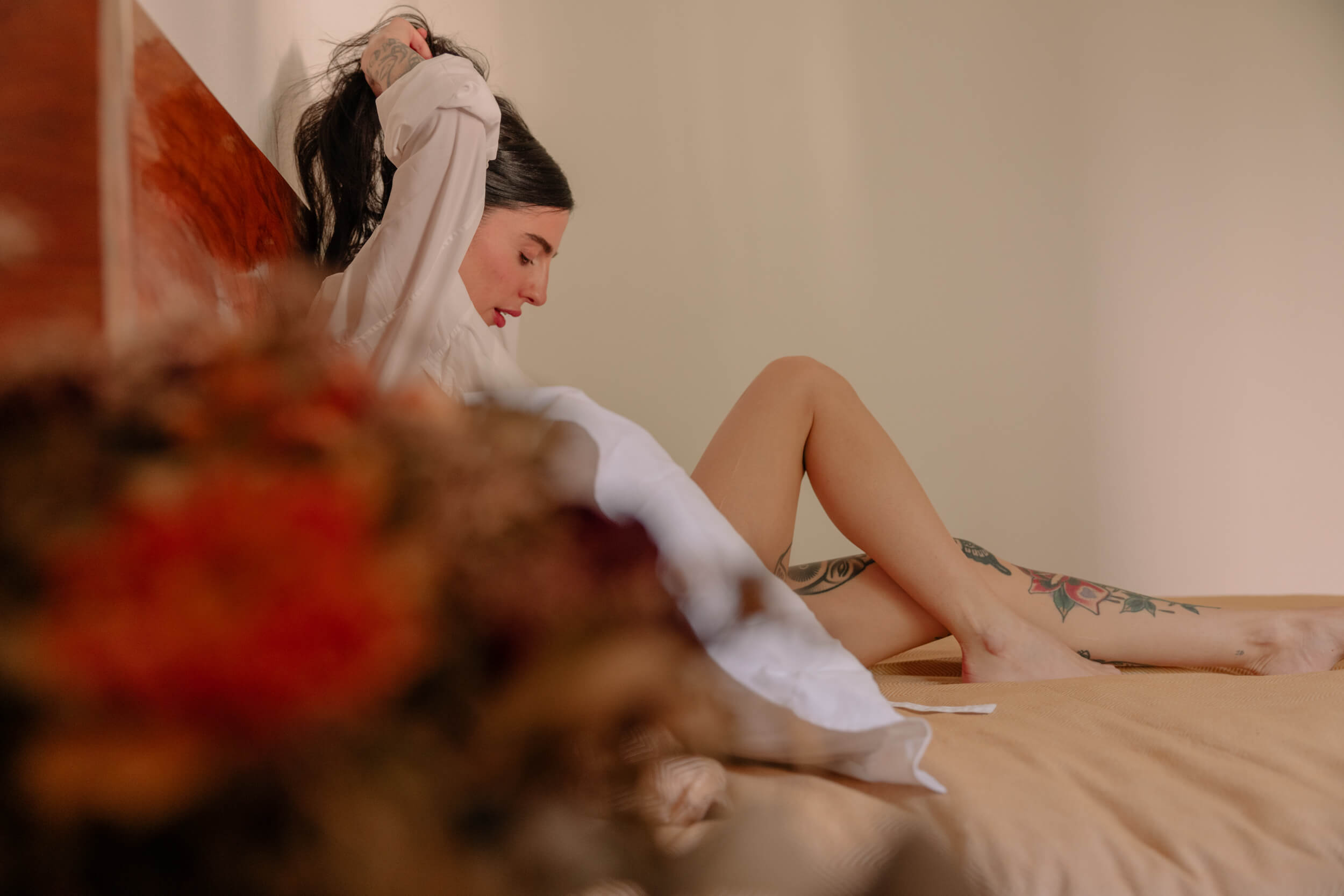
Is writing, for you, a somewhat spontaneous operation, something that prevents you from suffering? You know, I’ve heard many writers say that the moment of writing can also be a time of suffering…
Writing for me is exorcism, writing means exorcizing something.
One of my ex-bosses used to say: when you see something that impresses you, or upsets you, or makes you sad, if you don’t write about it, you won’t exorcize it, and when you eventually write about it, you’ll pull it out of you. So, writing for me is an act of freedom, a very spontaneous process, it happens very quickly. I’m a quick writer, in fact, I’m putting things out like crazy! [laughs]
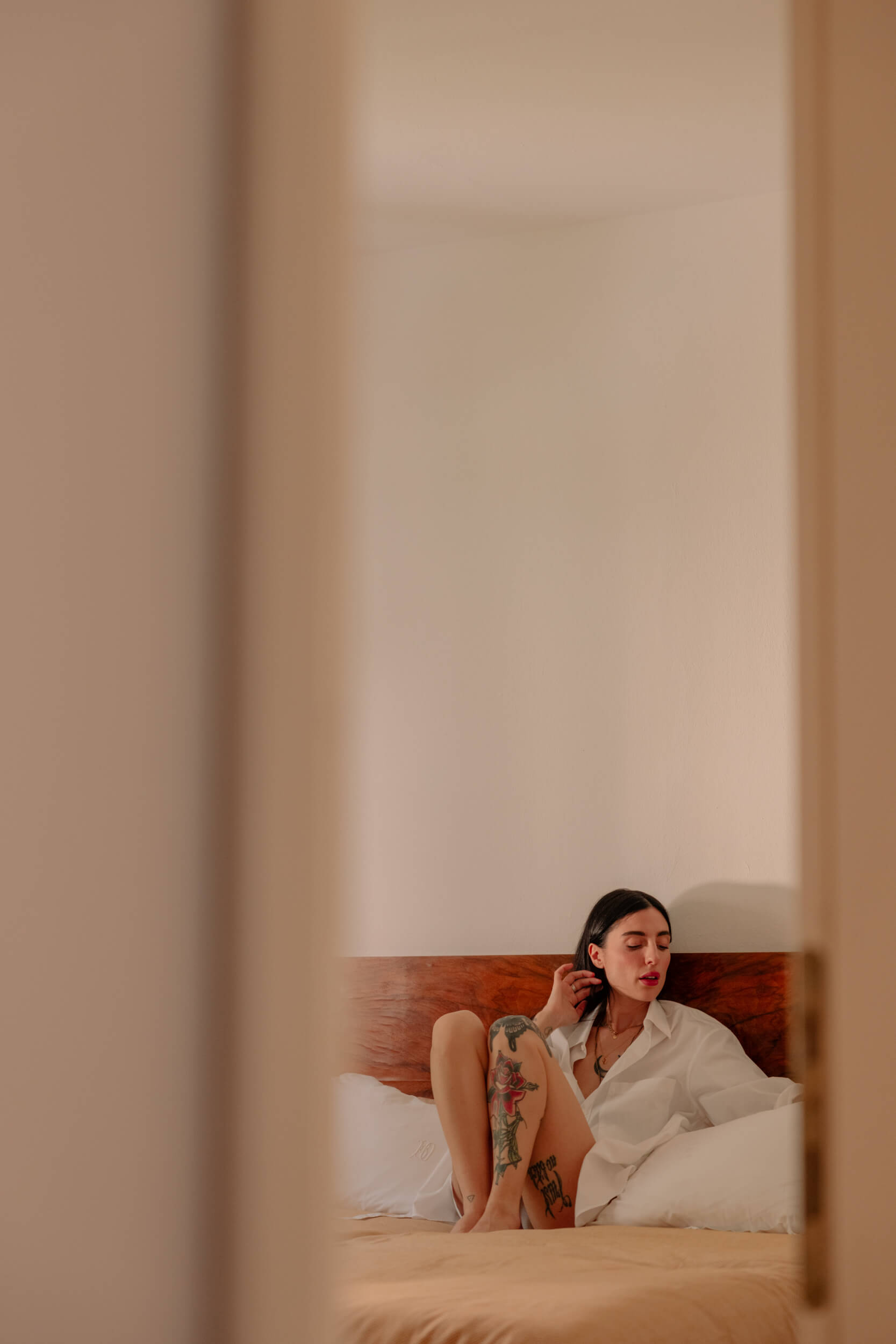
Morena is amazing. You compare her with Ursula. What’s the most evident aspect they share, in your opinion?
The desire not to disunite, not to disunite the community.
The desire to keep everyone close to each other. “Do not disunite,” hadn’t Sorrentino said that, I would have made Morena say it in the book! [laughs] The desire to keep generations close to each other, to keep the people around the same convivial table to talk and not to lose track. Even when all summer tourists go away, she calls them to know how they’re doing, what they’re doing, and if someone’s dead or has gotten married. To keep updated and then start again when the next season begins.
Have you ever felt that way?
I come and go. So, I can’t have that continuity. Of course, I do have a connection with all my friends, we check in with each other every day, I want to be kept updated not to totally feel disconnected. But Morena has made a registry offer out of it! [laughs]
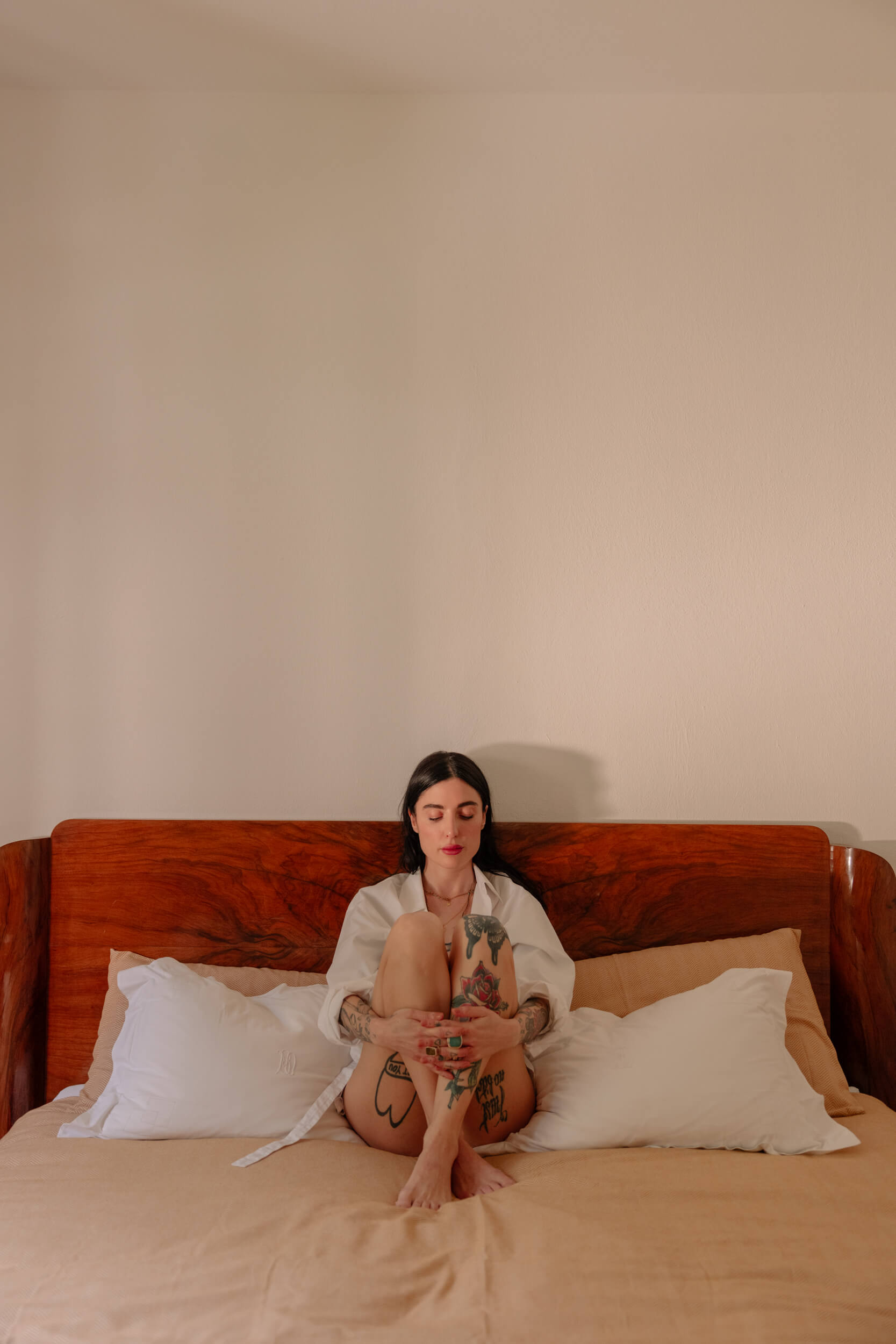

When you write about Gabri, instead, you formulate an amazing sentence, I think, you say: “It’s like she’s always been there.” Where or in which emotional state would you love to feel like “you’ve always been there”?
I’d love to feel like I’ve always been in peace. Which is the most distant thing from me, especially over the last year, which has been explosive in so many ways. When I’m there, I feel like I’m in this sort of peace bubble and I also feel a certain disconnection that allows me to have a clear mind. From peace comes disconnection, which originates clearness of mind, so for me, if I can stay in that situation, not only do I get deeper into things, but I also feel like when you start breathing again after being underwater.
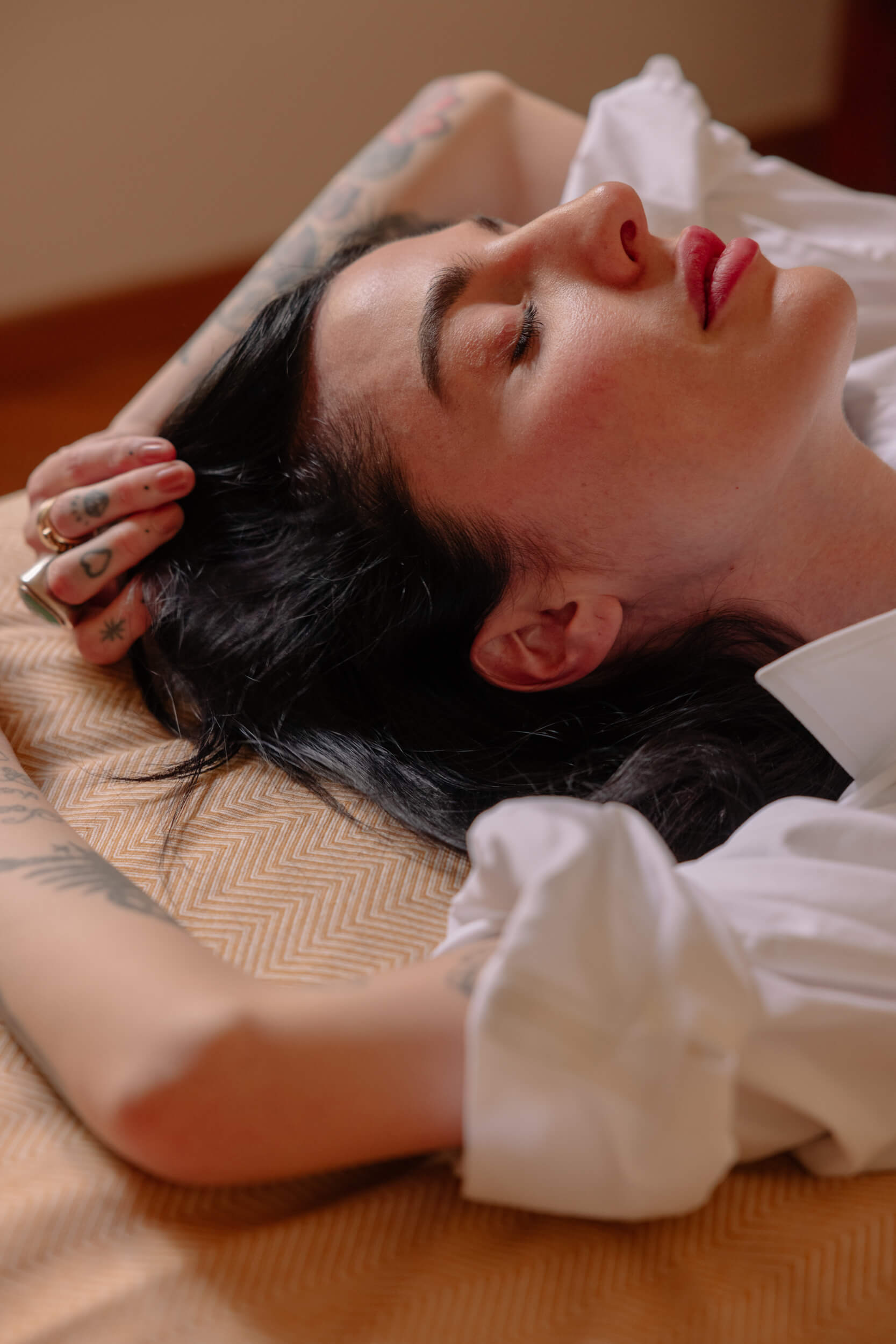
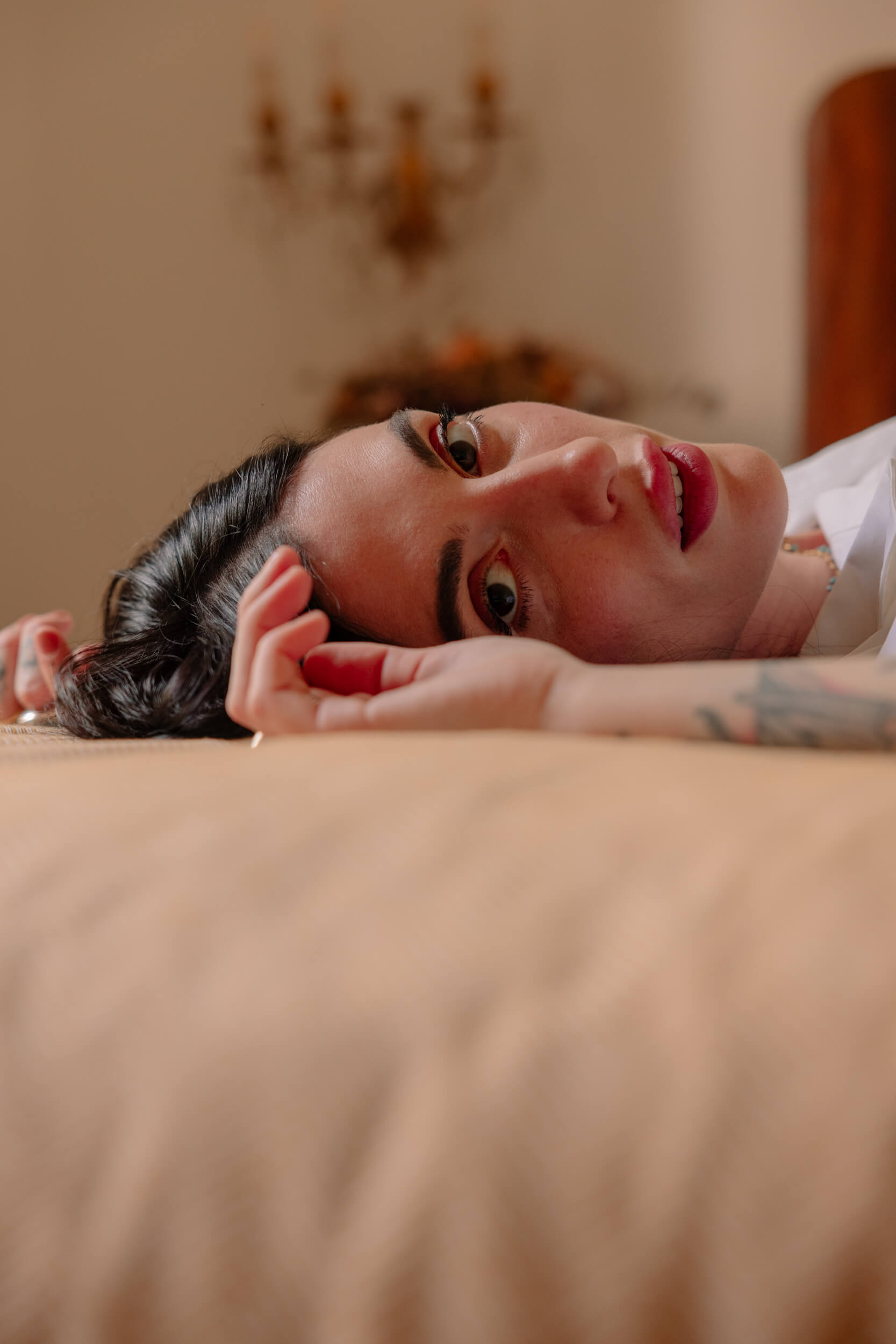
“…like when you start breathing again after being underwater.”
When you talk about Pilar, instead, you mention your laugh. What would you want your laugh to be described like?
My laugh is so noisy! [laughs] I make so much noise when I laugh, and I remember my primary school teacher hating it. She would say to me,
“This is bad, you’re being vulgar, please, laugh as a lady should.”
My laugh has always been loud, while Gabri’s is deep, as much as Pilar’s, always deeper as the years go by. My laugh is like lightning, an electric shock, while hers sounds more welcoming.
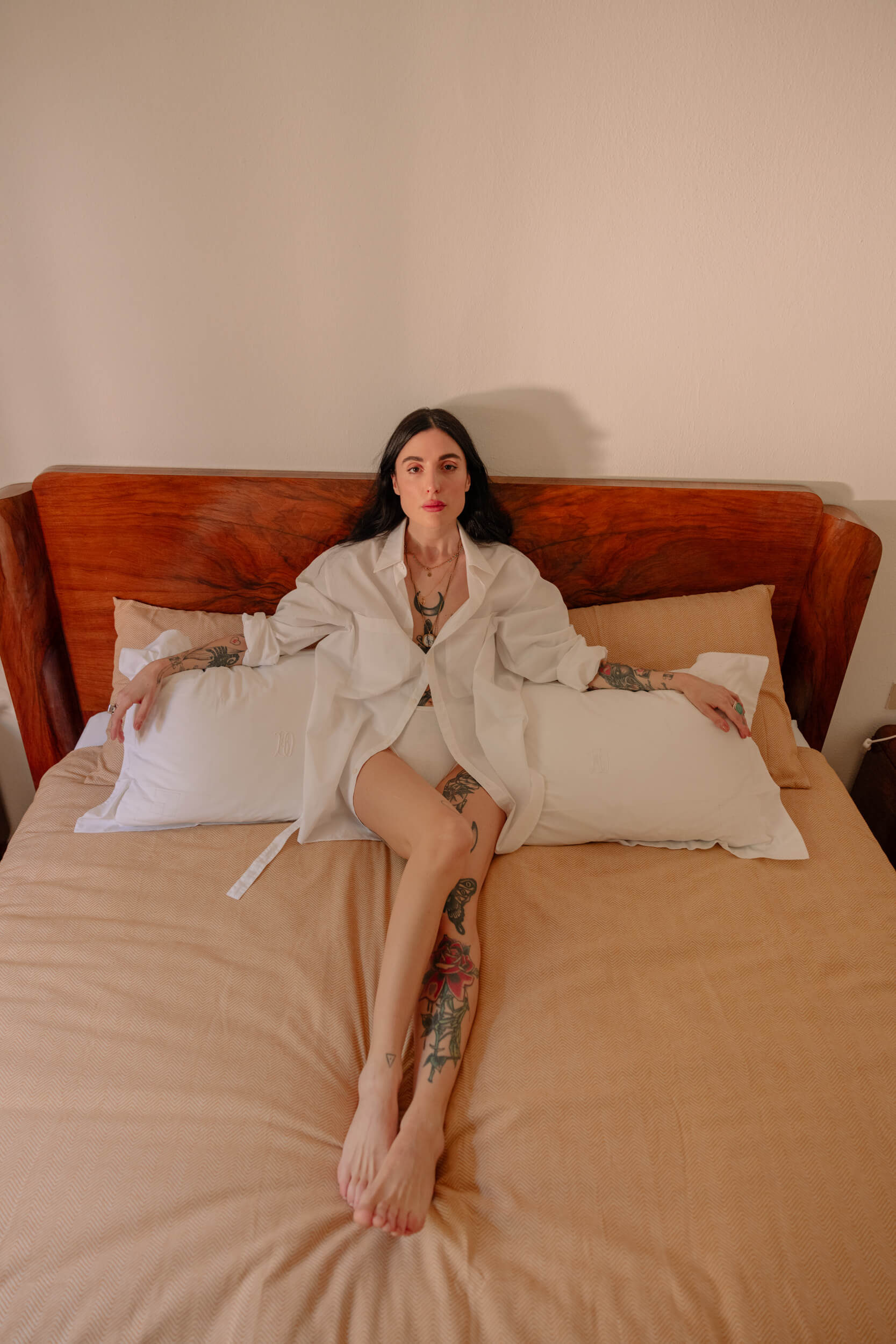
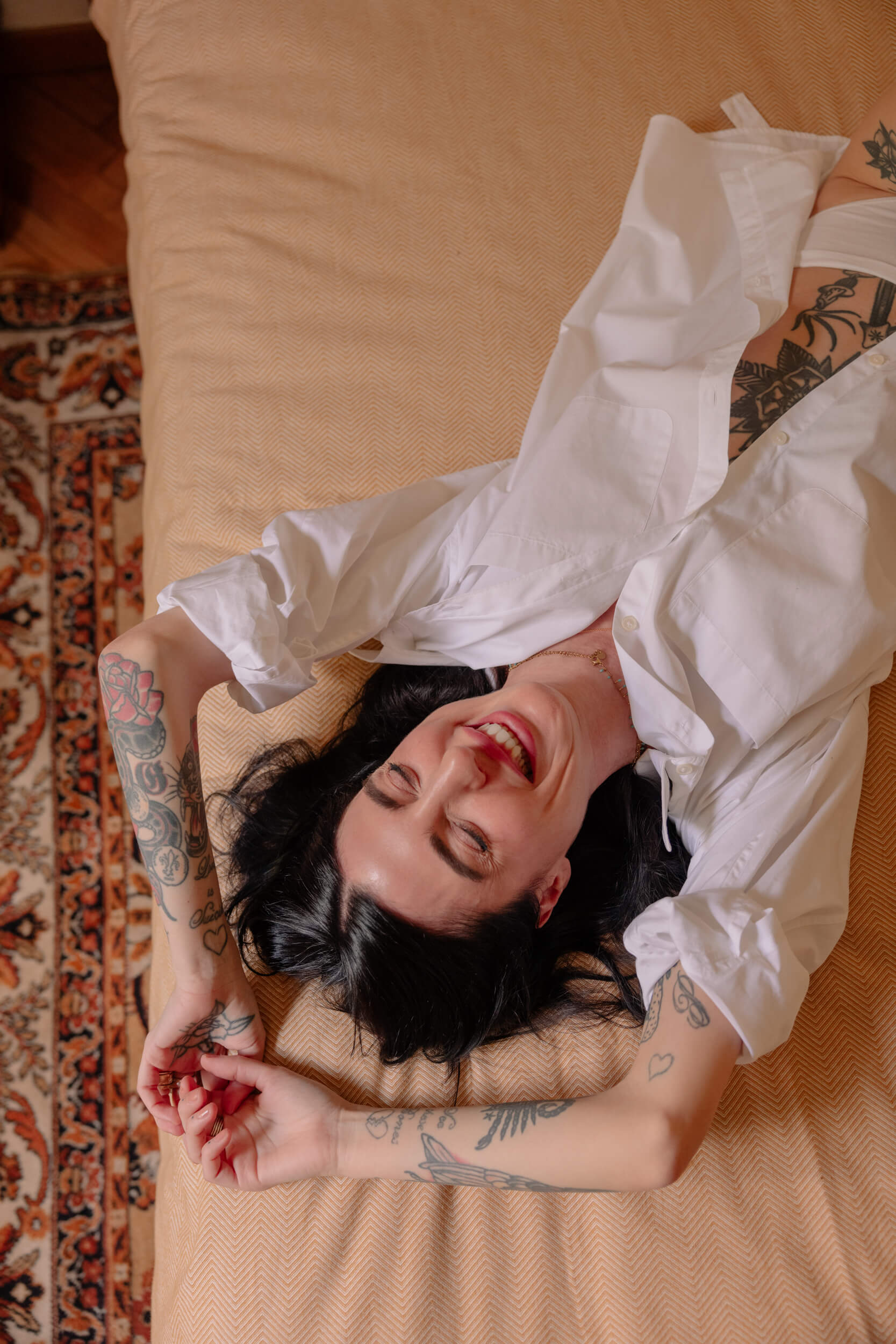
Speaking of Remedios, you write: “If you can’t get something, then you should ruin its reputation.” Do you maybe think that this is what’s happening on social media, too, when we’re constantly attacked and receiving negative comments?
Sure! Ever since forever, when you don’t like someone, and you don’t want them to be rewarded in any way, you try to destroy them. We keep witnessing this in politics, we’ve seen this for decades on tabloids: it’s the most vulgar weapon ever, but it’s also the easiest one. So, this is also the reason why I’m trying to separate myself from that means, it makes no sense anymore for me to use it, it’s all about things that last for a second, but still, live forever on the skin of those who experience them.
It’s a truly unbalanced and very mean power.
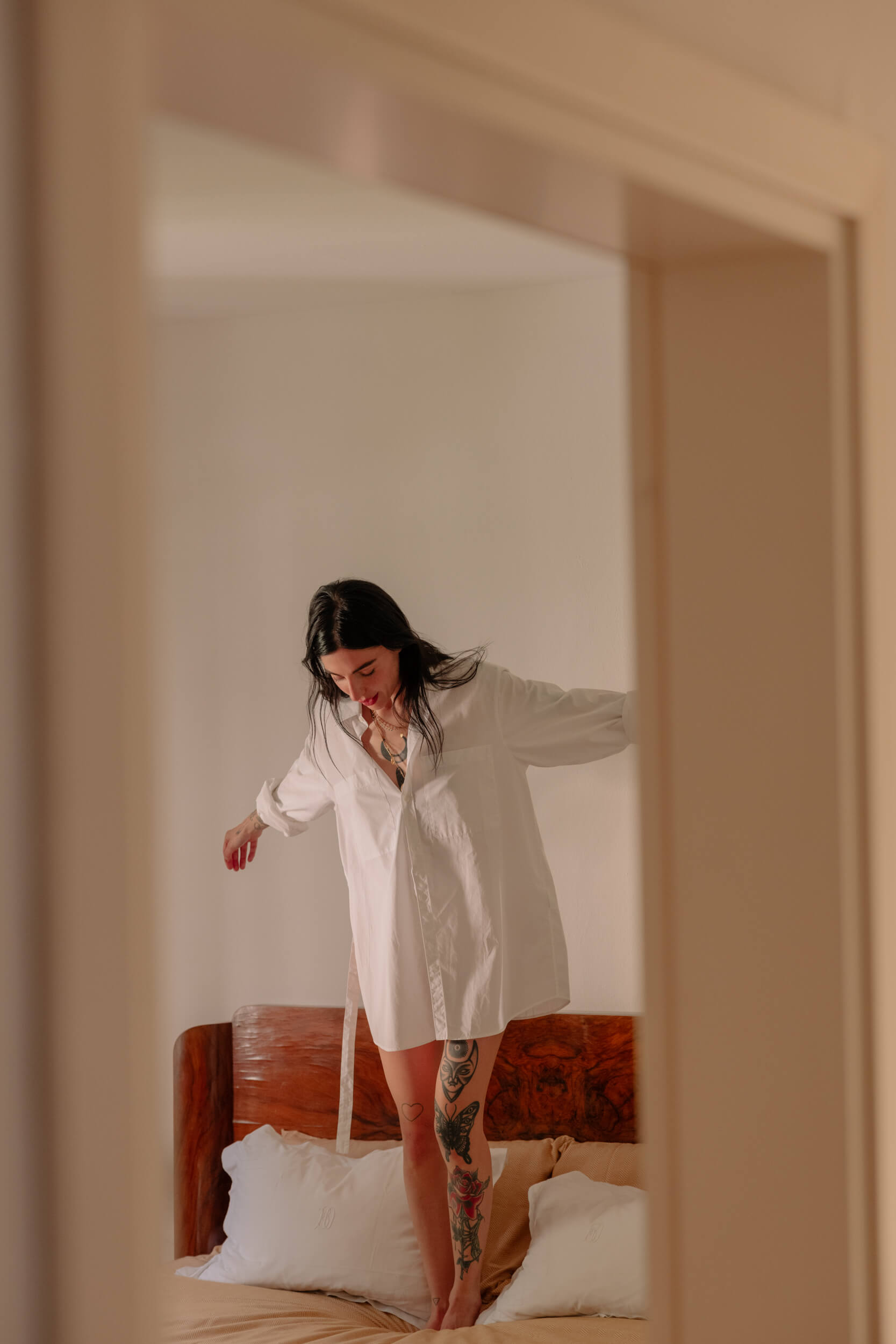
Perhaps, one of my favorite parts is the one in which you talk about Remedios and mention the concept of beauty and freedom. If I think of beauty and freedom, my mind goes to myself as a child, and it’s impressed me so much that this is something you, too, write about her. In which moments do you think about yourself in these terms, with the freedom and beauty you talk about?
My childhood is crystalized in a very beautiful and isolated place, full of nature, a childhood in which I was very lonely and quiet, but terribly happy. Growing up, my freedom has become the interruptions from my routine. My latest, deep memory of freedom is an image of myself, in 2018, at the last night of the Primavera Sound music festival, under the Ray-Ban Stage: the dawn is breaking, and The Blaze is on stage, one in front of the other, and all the people, who don’t want to leave because it’s the last night, and it’s like a huge party, they randomly hug each other and make toasts, just like in a huge party; so, in that very moment, while the dawn is breaking, I remember saying: “Fuck, this is collective freedom. Fuck, this is a moment of complete freedom.” It was very nice. After that, I entered a whirlwind of work, so I started missing that part of freedom, and then the pandemic came…
So, today’s freedom is when I go to Marina and the fucking repeater breaks! [laughs]
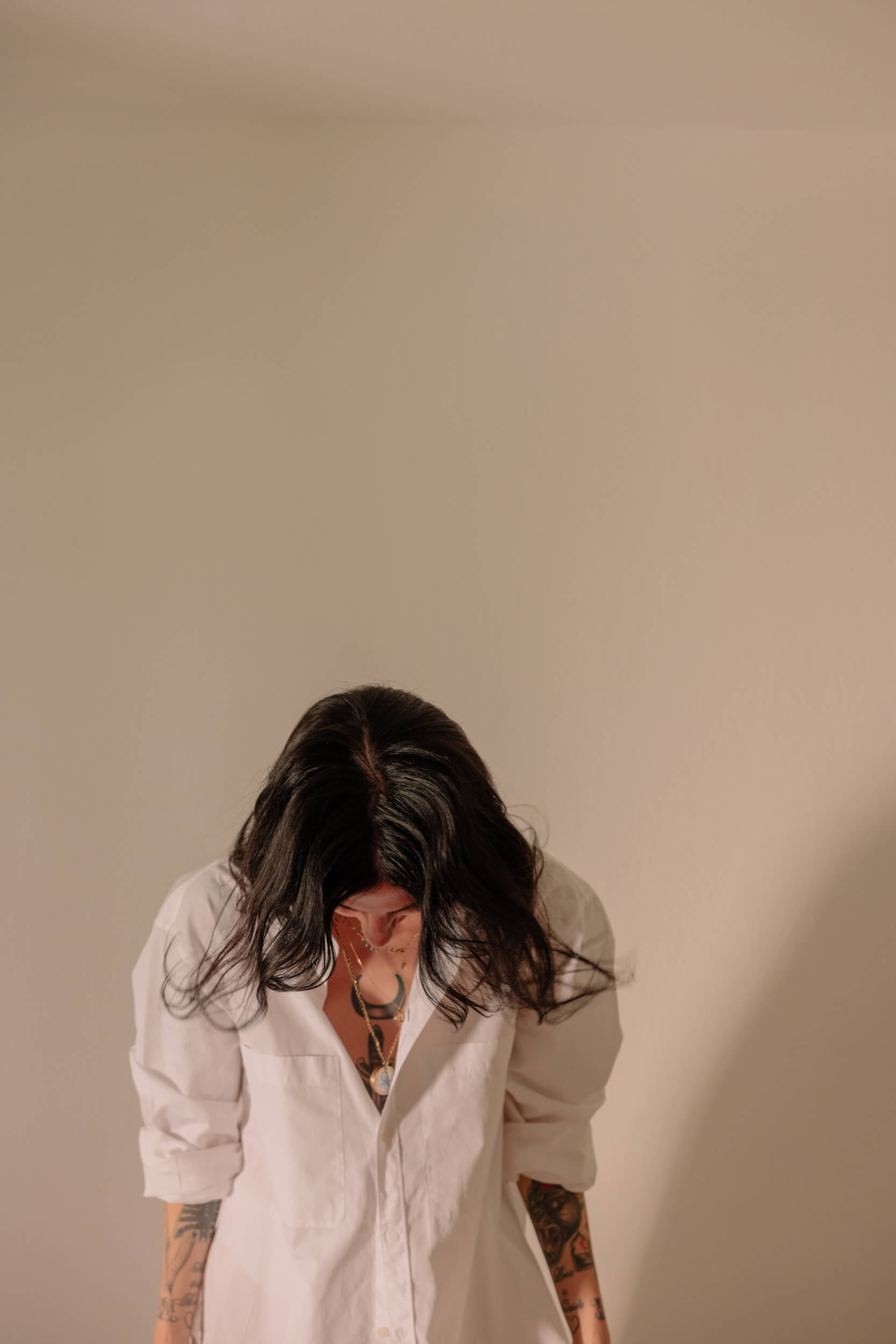
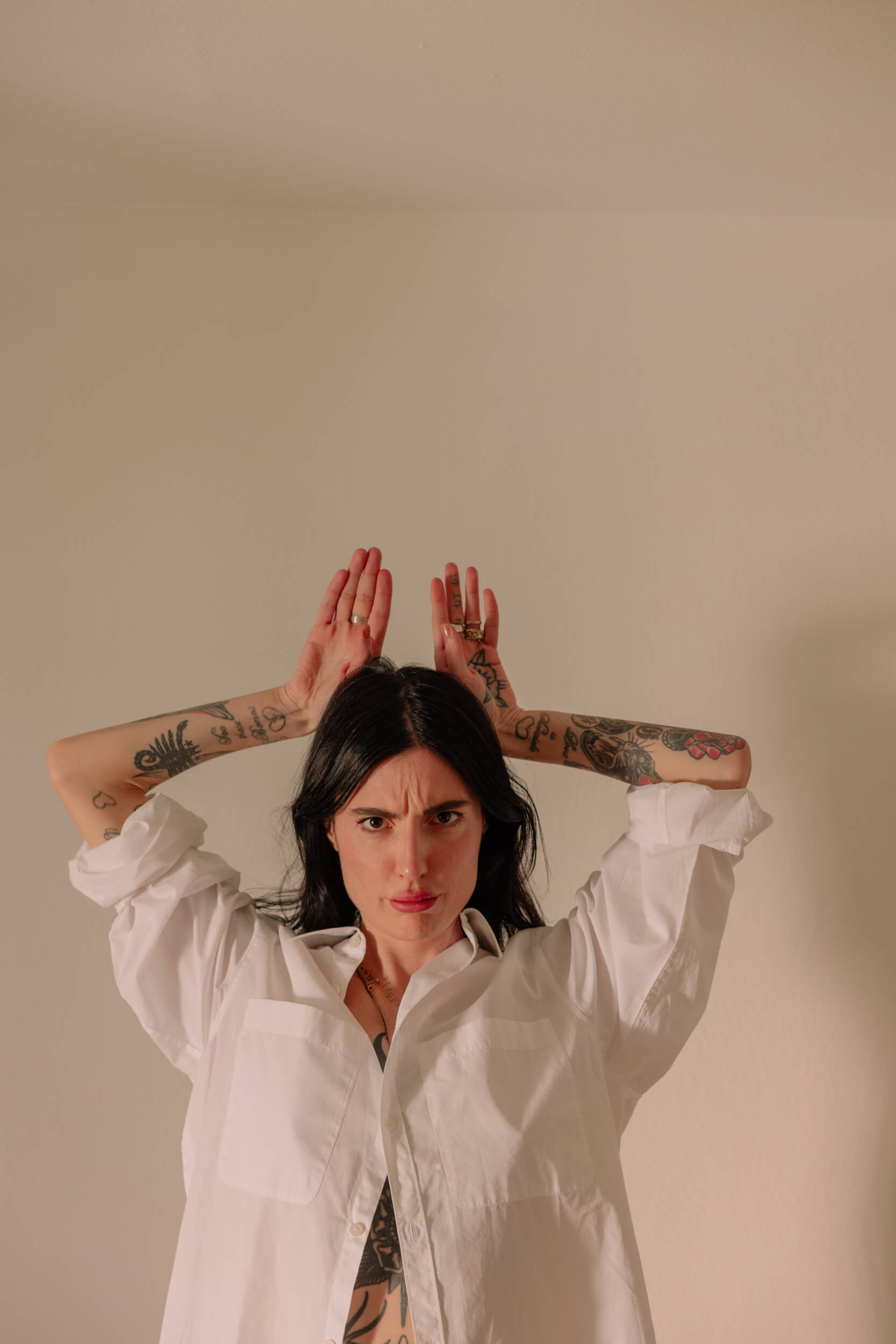
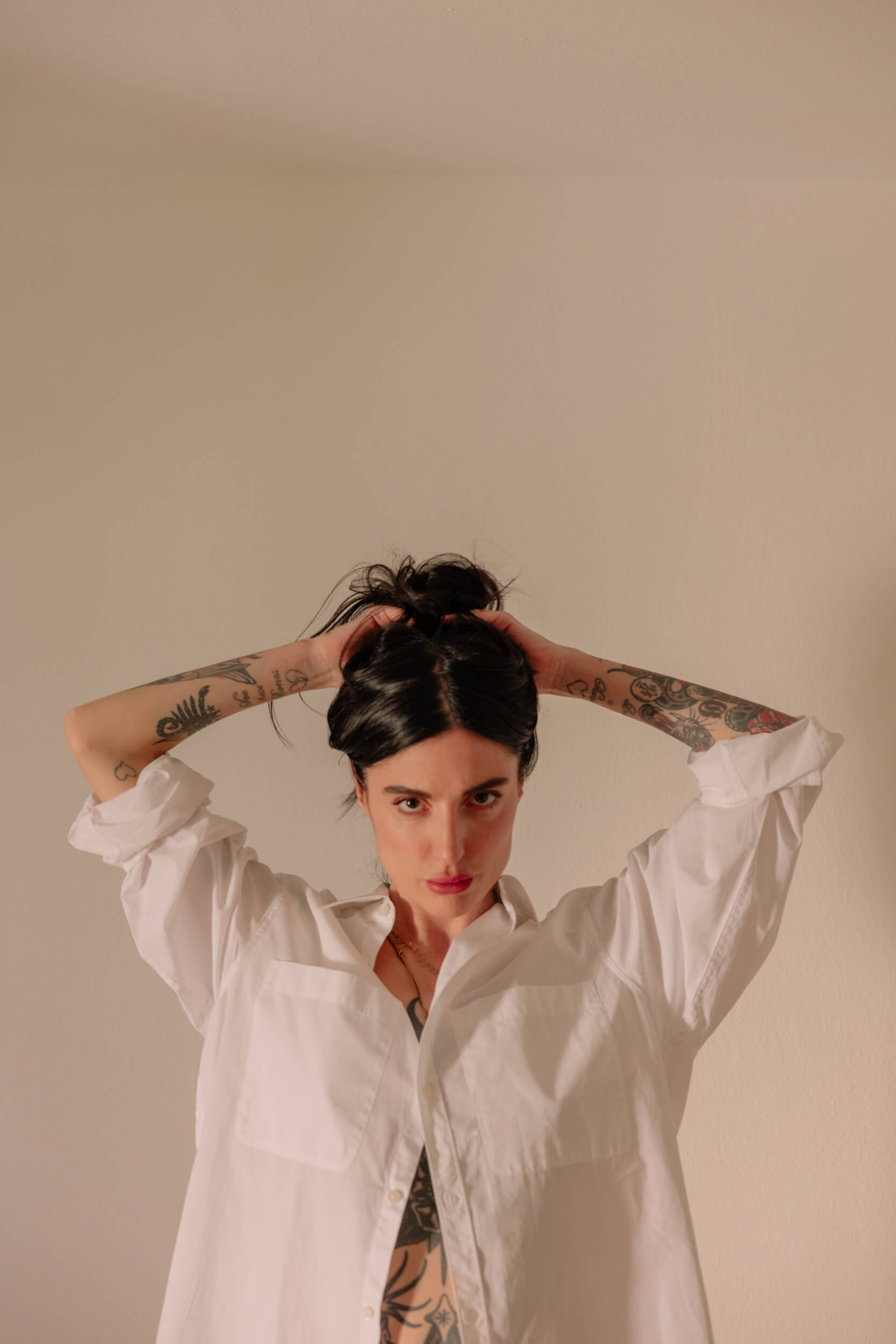
“Fuck, this is collective freedom“
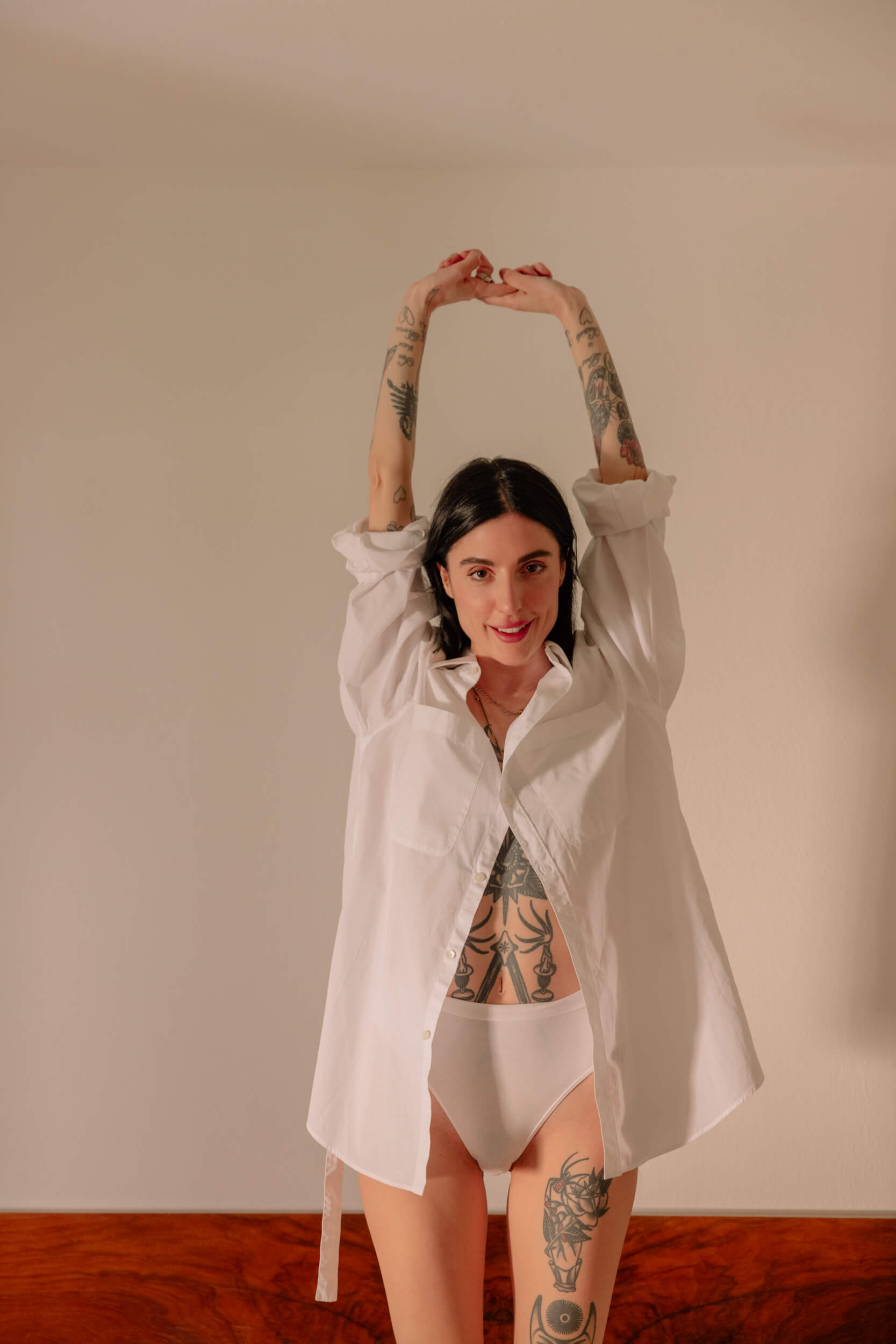
What other woman would you say is part of the Garden of Eden you talk about in the book?
I think the quintessential woman would have been Marylin Monroe, though she didn’t behave like Remedios: one manages to elevate and leave, the other one remains too earthly, instead, so much earthly that she decides to leave taking her own life. There’s something of Remedios also in all the idols we make up: idolatry has become our new religion. We often put people on a pedestal in a totally random way and we try everything we can to reach that ideal, but we don’t understand it’s impossible to, in general, because we’re all different, and we all have our uniqueness.
However, idolatry is a big Garden of Eden, it makes us hate it because we can’t have it, get to it, but also love it because it’s the most desirable thing in the world.
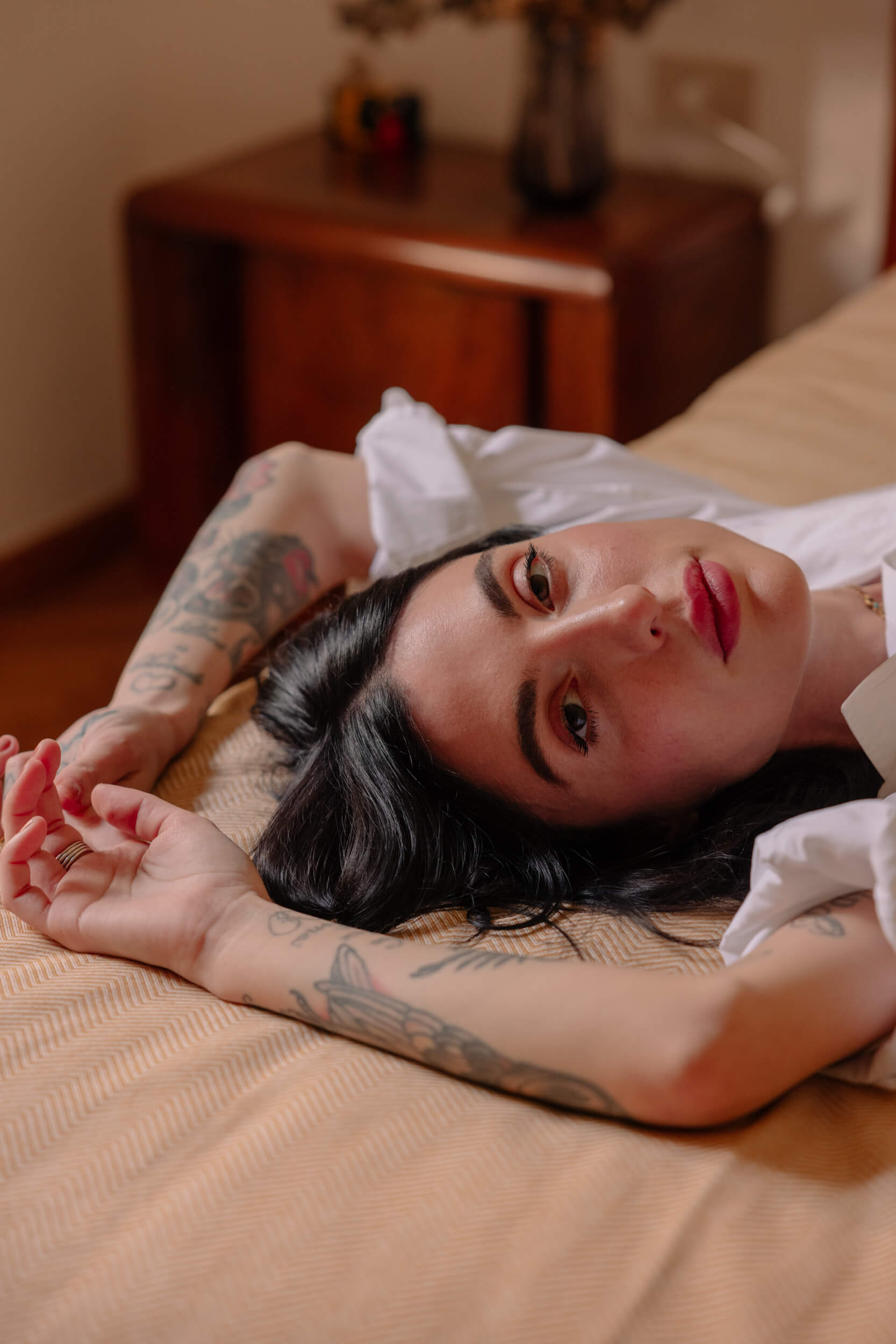
About Amaranta, instead, you write about the loss of the ability to observe other people with humanity. In your opinion, who’s a literary female character who’s always been looked at with no humanity?
Well, there are lots in Márquez, like Sierva María from “Of Love and Other Demons,” who’s seen as demon-possessed and terrifying, she’s completely de-humanized, deprived of all human rights, treated like a dog, tied in a small cell and treated like an animal because they initially think she has rabies. The same goes for the protagonist of “The Scarlet Letter,” for women guilty of any shame, the loss of innocence, virginity. Nadia Terranova, with the character of Barbara, does a great job in this sense: Barbara, in the book, is raped and loses her social status, she’s looked bad, almost pushed away, especially in the convent where she takes shelter. Many stories take inspiration from reality, it’s not hard to convey our society through literature. In this way, the story of lots of earthly women becomes the story of fictional characters.
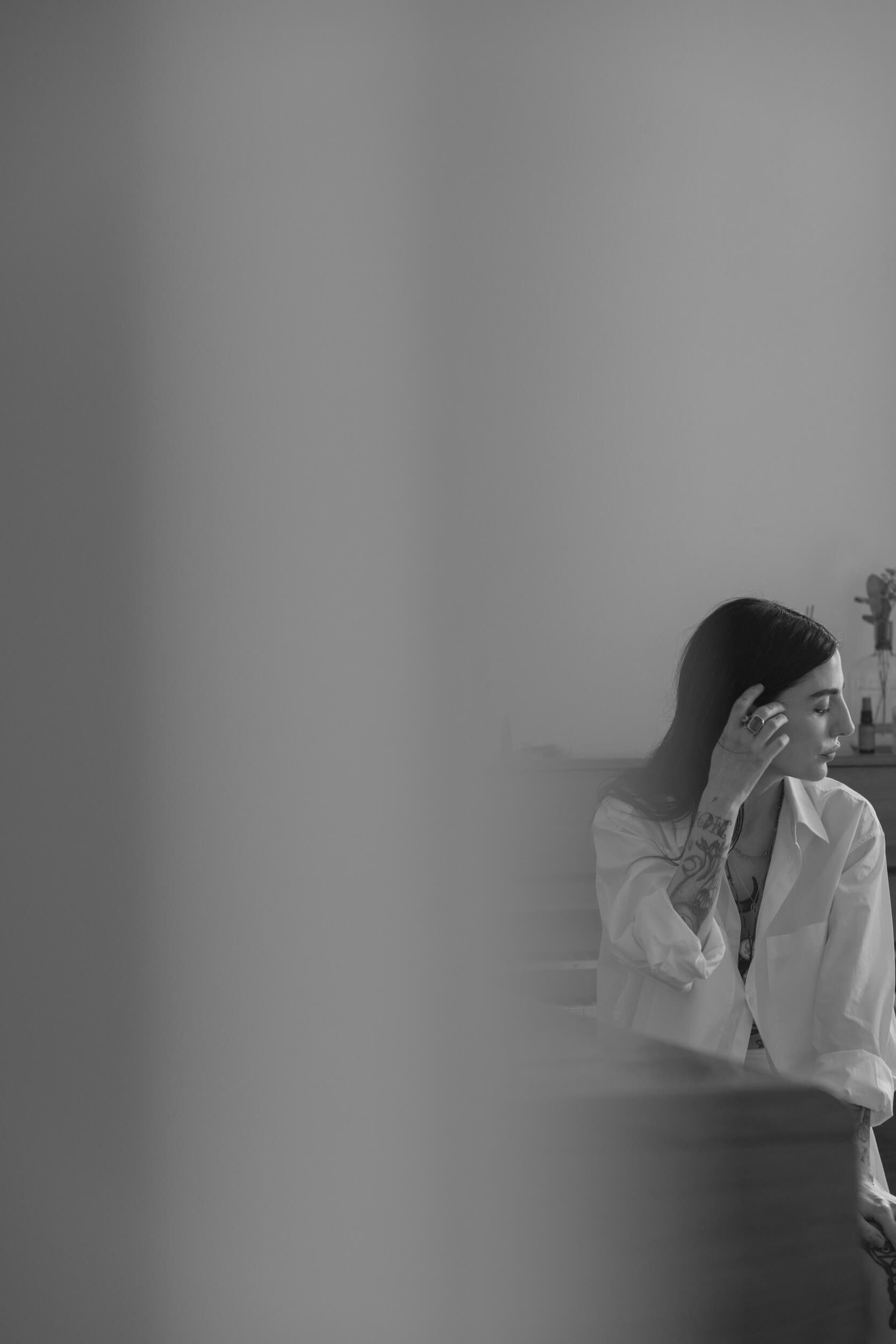
“…it’s not hard to convey our society through literature.”
You also discuss rehabilitation: do you think it’s possible, for the idea you have of it?
Look, we live in a society that prefers punishment to rehabilitation and reeducation, so my answer is: absolutely not. Punishing without reeducating makes us feel much more comfortable with our conscience and prevents us from putting effort into that: just think of our penitentiary system, police system, and our system in general, which encourages victim blaming, the punishing of the victim for something they’ve undergone. I don’t know if rehabilitation is part of our contemporary society, I hope this will change, though, because it’s the only possible way not to live forever in the things you’ve done.
What comes to my mind is a theory of a sociologist called Christie, about the perfect victim: according to him, it’s the elderly and the children, everyone that’s in the middle doesn’t exist. So, this also makes me think that the rehabilitation of someone like Stefano Cucchi in Italy has never been possible because he was a drug addict, so his mistake is destined to be stuck with him forever, also justifying what he’s eventually gone through. There’s no rehabilitation for victims, how could there be any for someone like him…
Towards the end of the book, you also talk about fear. Is there anything you’re scared of?
I’m scared of losing contact with reality, which has happened to me over the past two years. Because we’ve all been in our bubbles and have totally unlearned communication, and stocked a surplus of information that yet remained superficial, and we’ve always focused on the particular and never on the general case. This made us completely incapable of dialogue.
The loss of communication is the end of humanity, which is something I say multiple times in the book.
Buendìas could have lived on and Macondo could have not become extinct if they’d opened to other civilizations, and listened to their women and the neighboring villages, but it was not the case. Now, from all sides, both the progressive and the conservatory, there’s a complete lack of communication, so I don’t know where we could get to…
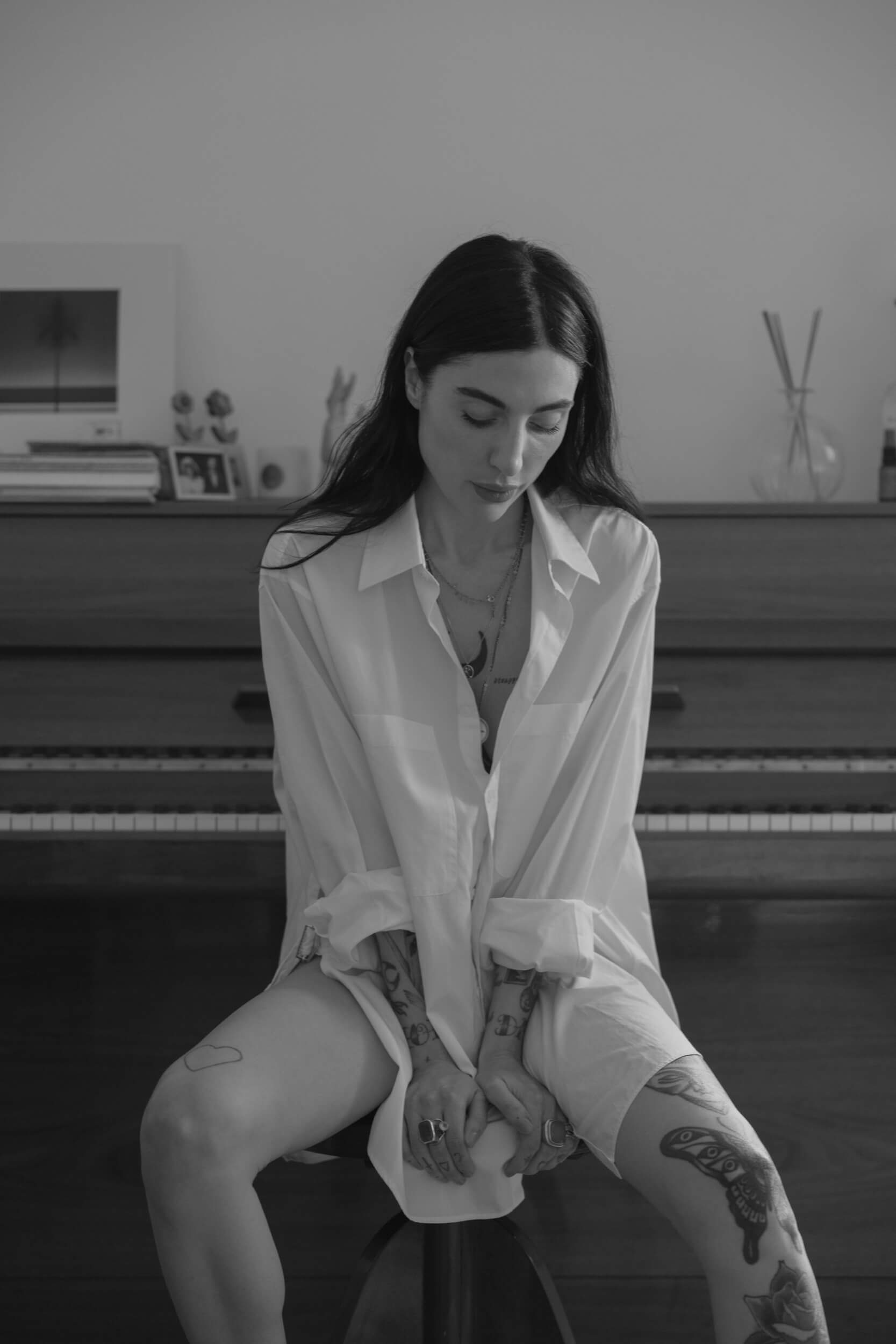
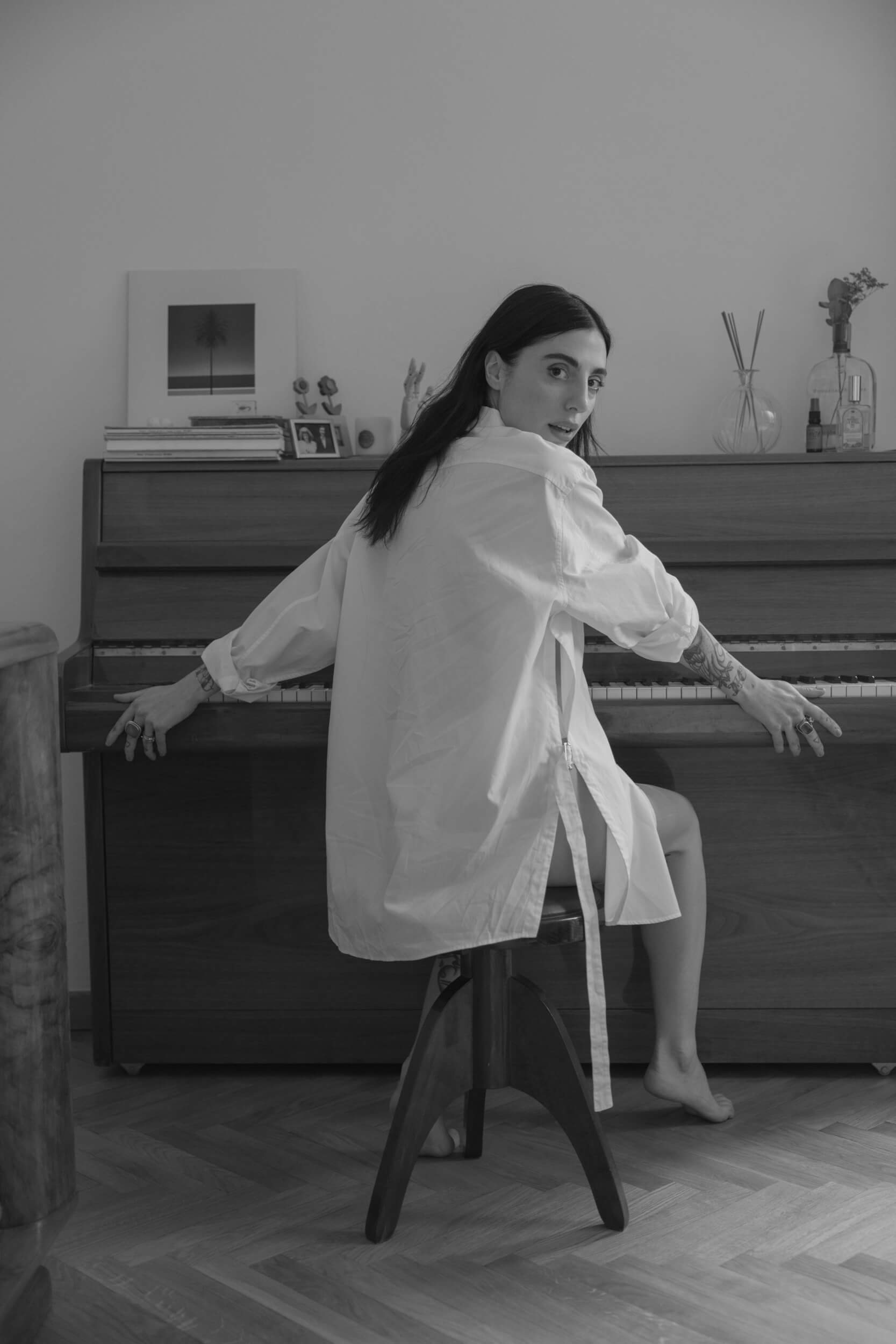
In fact, you talk about sharing, listening, and paying attention. Could these features, perhaps, save the world?
Yes. Absolutely yes. They said we would have come out of this as better humans, but I don’t think it’s happened.
One thing I could relate to so much is what you write when you talk about grandma Lucia, the warning for future generations: “Remember to embrace grief and process the pain, otherwise you’ll end up like me, surrounded by people who only live in the past and take drunk selfies with my statue, which doesn’t even represent me that faithfully. Be like the Buendìas women, bury your dead or, when in doubt, wall yourself up alive.” I really loved this part, what you say about embracing pain and experiencing grief, which is not an easy thing to do.
Not being able to find a compromise with the past and put the final point doesn’t even allow us to begin again. We’ve always and only been living in the past, and the most heard sentence is: “This is the way it’s always been.” This is a symptom of our inability to move forward. So, burying our dead becomes a life exercise.
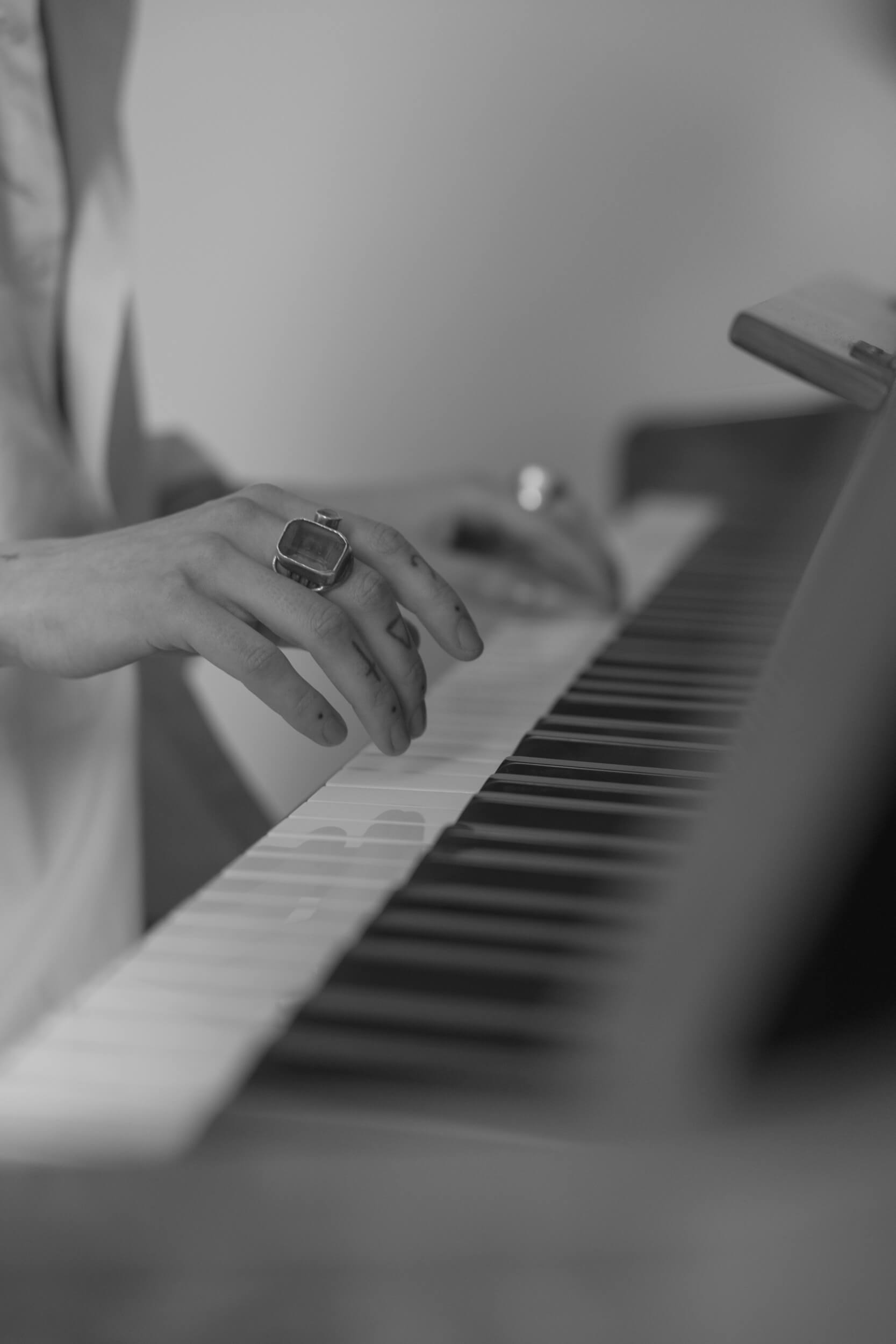
Photos &Video by Johnny Carrano.

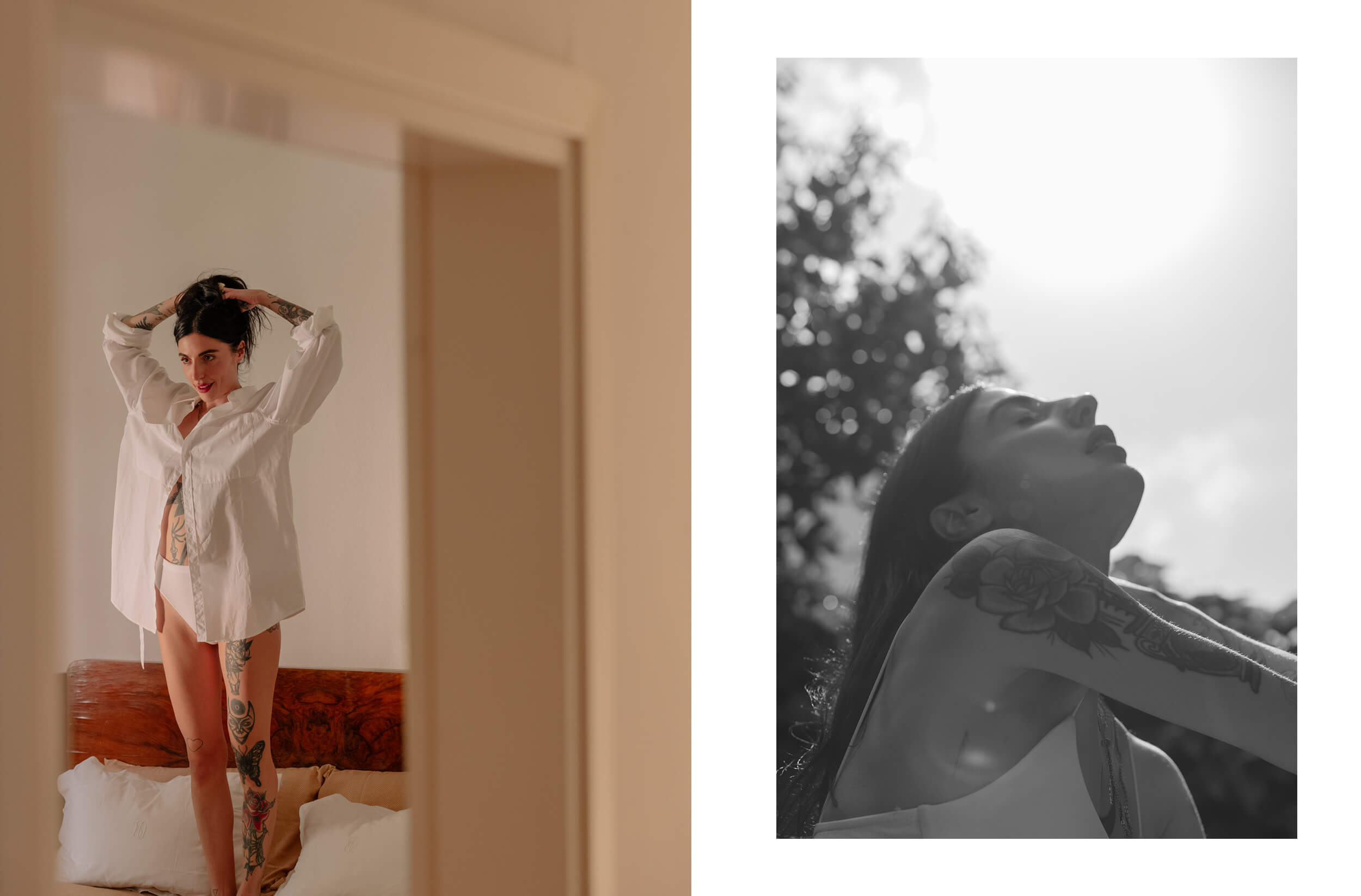
![Interview with Dr. George Gaitanos [Chief Operating and Scientific Officer of Chenot]: Giving meaning to time](https://www.theitalianreve.com/wp-content/uploads/2025/04/LAlbereta-dalla-Vigna-Leone-300x200.jpg)

